Hello and welcome to Work Week, the podcast where we tackle one big question each week about our rapidly evolving workplace. I’m Dr. Kelly Monahan, Managing Director of The Upwork Research Institute.
As always in this podcast, what you’ll hear today are my thoughts and ideas, guided by insights from the Research Institute, and brought to you by a digital proxy of my voice that was created by our team with the help of AI.
Our goal with this podcast is to help our listeners stay abreast of the rapid changes in the labor market. In recent years, AI has helped drive many of those changes, and using AI to help produce this podcast helps show that—while yes, how work gets done is changing—embracing those changes opens up new worlds of opportunity.
And that brings us to today’s topic—“How can we steer our organizations through challenging economic headwinds—and come out stronger?”
Economic slowdowns... inflation... market disruptions... shifting consumer demands—all these challenges can test even the most established businesses. But they also highlight a crucial truth: the way we work matters. Whether that’s adopting new technologies, embracing flexible hiring models and hybrid work, or forging new partnerships, leaders often need to rethink traditional methods just to stay afloat.
And that’s the focus of today’s episode: What practical steps can leaders take, right now, to remain agile, productive, and innovative when budgets tighten? I’ll look to insights from Upwork’s Work Innovator Research, our annual research surveying thousands of global business leaders, to see how forward-thinking companies adapt during challenging times.
In this research, we’ve identified a minority of companies that all have a few similar traits that help them optimize operations, improve cash flow, and enhance efficiency. We call these companies Work Innovators.
In our most recent Work Innovators report, one question we asked was how business leaders plan to navigate the increasing complexity surrounding their businesses. And we found that many plan to play it safe in the coming year.
30% plan to pursue a strategy of maintenance and keeping business operations steady, and an additional 17% plan to look for places to cut costs.
But just over a quarter of the respondents to our survey—26% of business leaders—believe they have the resilience they need to meet this moment with innovation, creativity, and change.
And this resilience is fundamental to pushing through economic headwinds. Our Work Innovator Research tells us resilience isn’t just about having deep pockets or rigid structures. Our study found that top-tier companies facing tough times use agility to pivot and even thrive. And agility in this context really means three things.
First, these companies were able to rapidly assemble the right talent for projects. This required more than knowing their people—it meant being able to quickly assess the skills a project needed and knowing where to source those skills quickly.
Second, in order to access the skills they needed, these top-performing companies used flexible workforce strategies to scale teams up and down. In the past, it was enough to throw overtime at a project to get things done. But today, the range of skills needed for many projects makes that impractical. Companies simply can’t afford to keep on their payroll all of the specialists they might need for limited windows of time. Instead, companies have to find ways to access the right skills at the right time.
And third, these agile companies were able to iterate quickly on ideas and avoid bureaucratic roadblocks. In an environment of rapidly shifting consumer demands and frequent market upheavals, companies need the capacity to pivot, riposte, and if needed pivot again. Becoming overly entrenched in an idea—especially one that the market quickly passes by while you’re still trying to cut red tape—risks losing valuable time and money to the sunk cost fallacy.
Leaders who see uncertainty as a catalyst for change often come out ahead. They use these moments to revamp processes, bring the right teams together, and even double down on innovation.
One standout theme from the Work Innovator Research is flexible talent—freelancers, consultants, and specialized contractors. Instead of relying only on a fixed, in-house roster, forward-thinking companies bring in experts on-demand for key initiatives or product launches.
Especially in a shaky economy, hiring full-time, in-house talent carries unnecessary risks and expenses. A more flexible approach like hiring on-demand, freelance talent lets you tap into niche skill sets and spin up a project quickly while keeping overhead low.
More than that, this flexible approach broadens your creative capacity. Full-time employees are important for maintaining continuity and institutionalized knowledge but can become entrenched and set in their ways. Outside experts bring fresh perspectives and insights, as well as new-to-you best practices.
Our research showed that 92% of Work Innovators say they want to work with the best talent, regardless of where that talent comes from—within their four walls, or through a freelance platform. And by bringing this talent in, their entire team is exposed to new ways of looking at, and addressing, challenges.
In line with this finding from our research is how and why highly adaptive companies prioritize upskilling and cross-training, especially when budgets are tight. In an unpredictable climate, having employees who can pivot or take on new roles is a game-changer.
Not only does it make your team more agile and resilient, but leaders who carve out resources for professional development also often see higher engagement and stronger retention—people feel more secure knowing they’re learning new skills. That makes navigating sudden changes far less chaotic.
Especially in stressful economic times, organizations with a people-first mentality—those that offer services like mental health resources and flexible schedules, or that simply have transparent communication—tend to stay stronger and bounce back faster than their competitors that fail to meet these metrics.
Supporting employees by encouraging breaks and offering remote-work options and flexible hours can help maintain productivity without burning people out. In rough times, a supportive culture is often your best defense against losing talented team members.
Leading through tough economic times is about more than simply putting new products and services on the market to bring in additional revenue, or cutting costs to make up for shortfalls. When times are tough, many work innovators rethink their entire work process—like going asynchronous across time zones or adopting a “fail fast” pilot project system.
The lesson? Hard times can spark the best transformations if leadership is open-minded and ready to experiment. When everyone’s forced to do more with less, it can prompt creativity you wouldn’t tap into otherwise, and can sometimes yield the biggest breakthroughs.
And to help you spark your next breakthrough, we like to wrap things up on Work Week with one action or reflection you can bring back to your workplace. This week’s action step for leaders: Perform a “Resilience Audit.” To do this, you’ll want to focus on three things.
First, look at your talent mix. Are you suffering from skills gaps in key areas? Can you afford the time to retrain your full-time employees, or are there areas where flexible or freelance specialists could spark immediate innovation?
Second, ask if your organization is adaptable enough. Does your organizational structure let employees pivot if priorities shift? Often, leaders are still working too closely to org charts and job titles and not rapidly responding to on-the-ground needs.
Finally, consider how your teams communicate. Are you fostering transparency and quick decision-making? This can be especially challenging in remote environments, where open communication takes more intentionality.
These three points can help you see where you can strengthen your organization’s agility, reduce costs, or tap into new ideas—especially important when the economy wobbles.
Ask yourself: “How can we turn economic uncertainties into chances for growth?”
If you’re a leader, create room for brainstorming cost-saving or innovative ideas.
If you’re on a team, where can you step up? Could you learn a new skill or propose a cross-department project?
Seeing challenges as opportunities can transform the conversation from panic to possibility. And, if you’d like to learn more about how leaders can help guide their teams through challenging economic times, I’d encourage you to check out my recent book, Essential. Essential provides the research and actions leaders need in order to make these mindset shifts about the workforce.
And that’s it for today’s episode of Work Week. We looked at how leaders can steer their organizations through economic headwinds. Using insights from Upwork’s Work Innovator Research, we’ve seen that agility, flexible talent strategies, continuous learning, and a people-first culture can help companies not only survive—but thrive—when times are tough.
If you found value here, consider sharing this episode with a colleague or a friend who could use a little inspiration. And be sure to subscribe for more evolving insights into the future of work.
I’m Kelly Monahan reminding you that challenging times can spark the best innovations—if you let them.







.png)
.png)
.png)
.png)
.png)



.png)

-p-500.jpg.png)

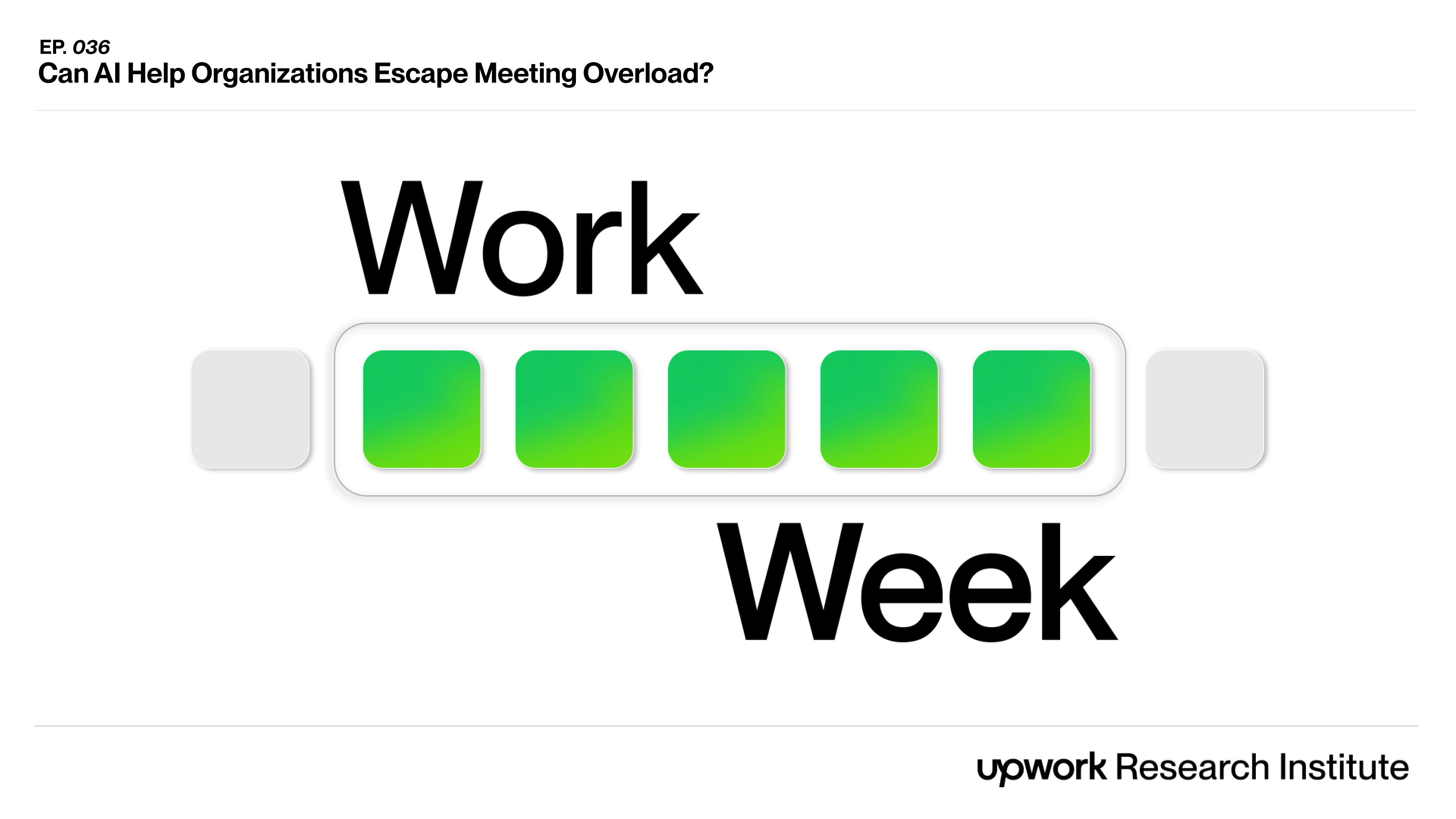

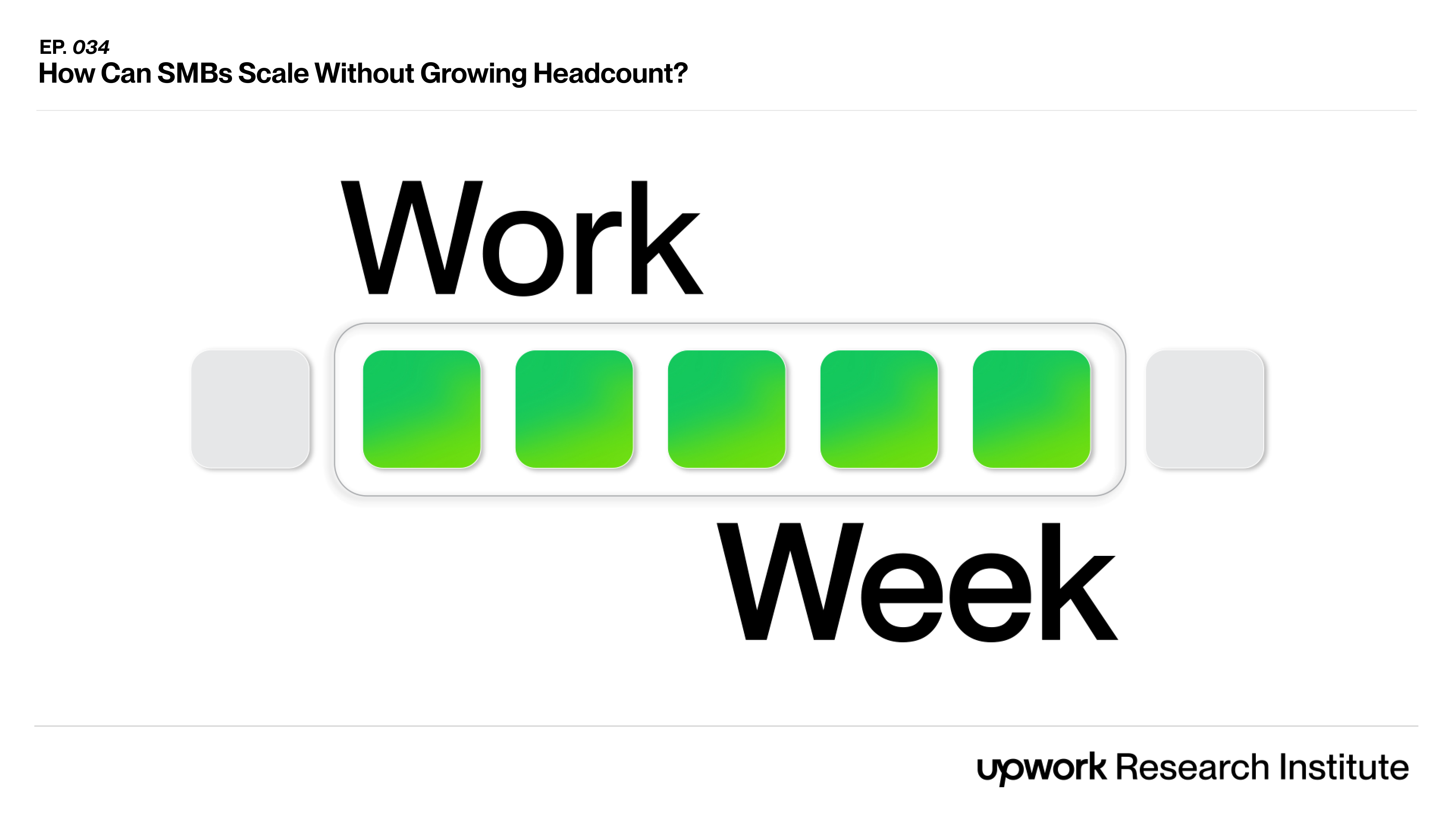
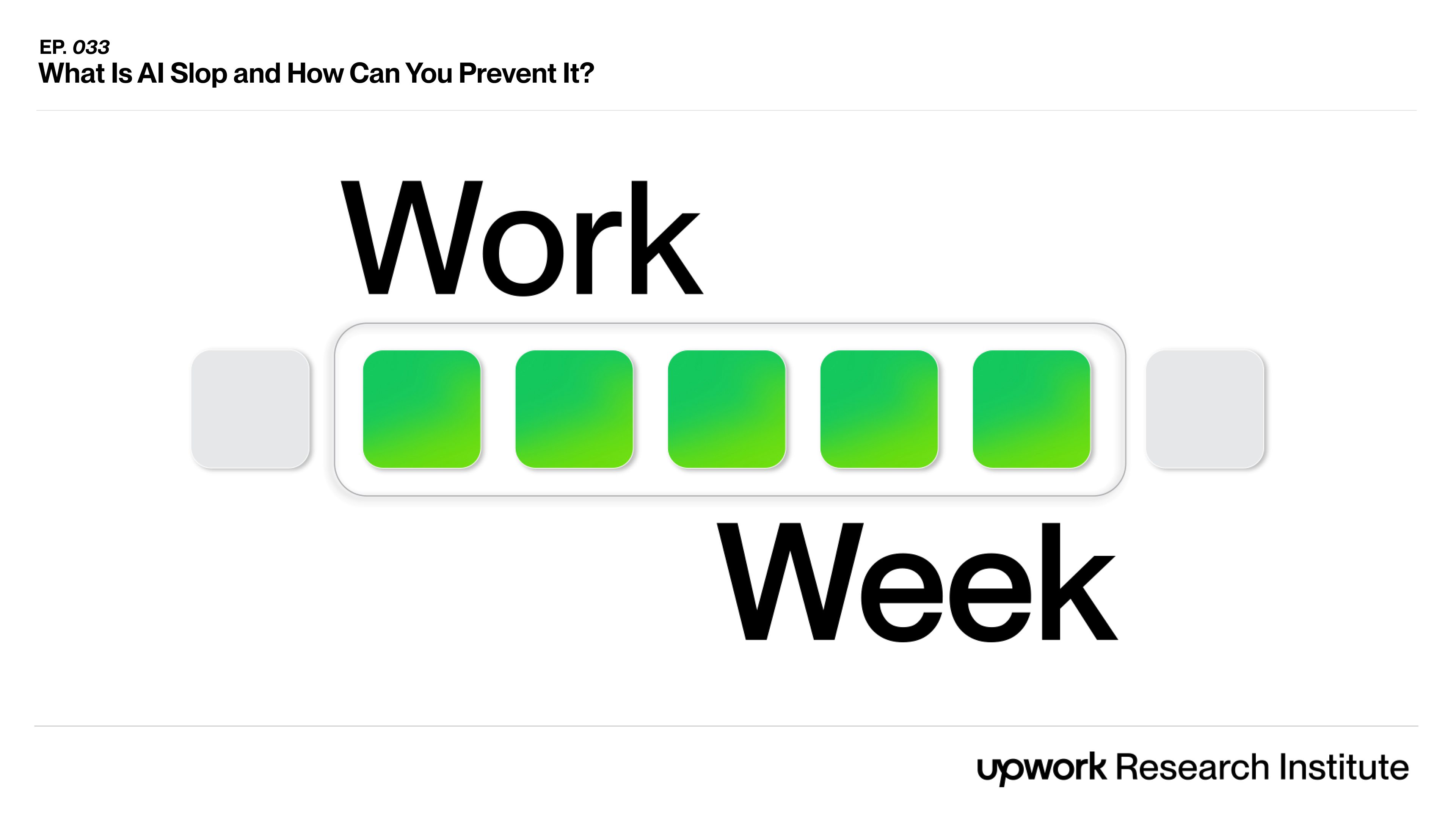
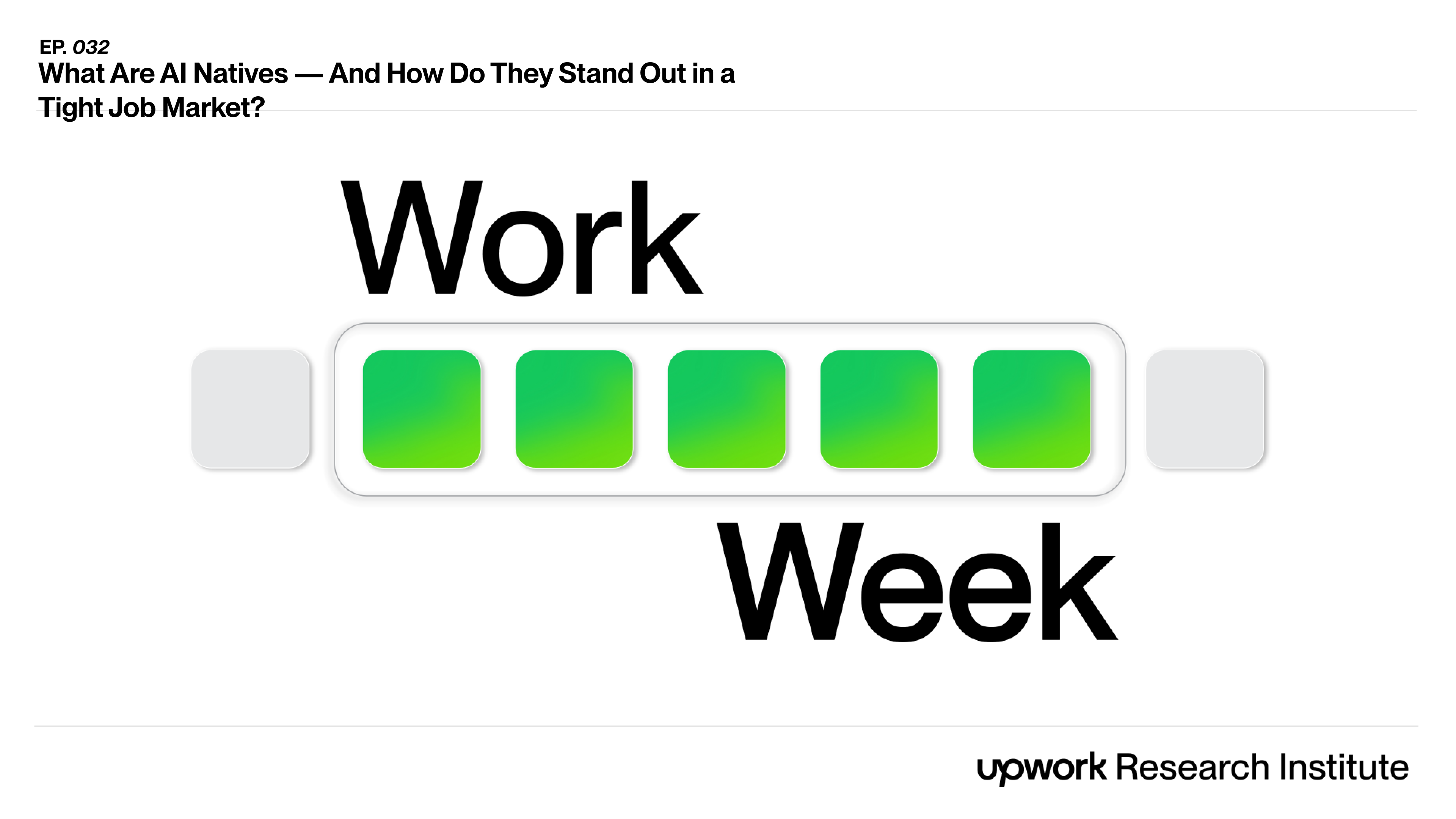
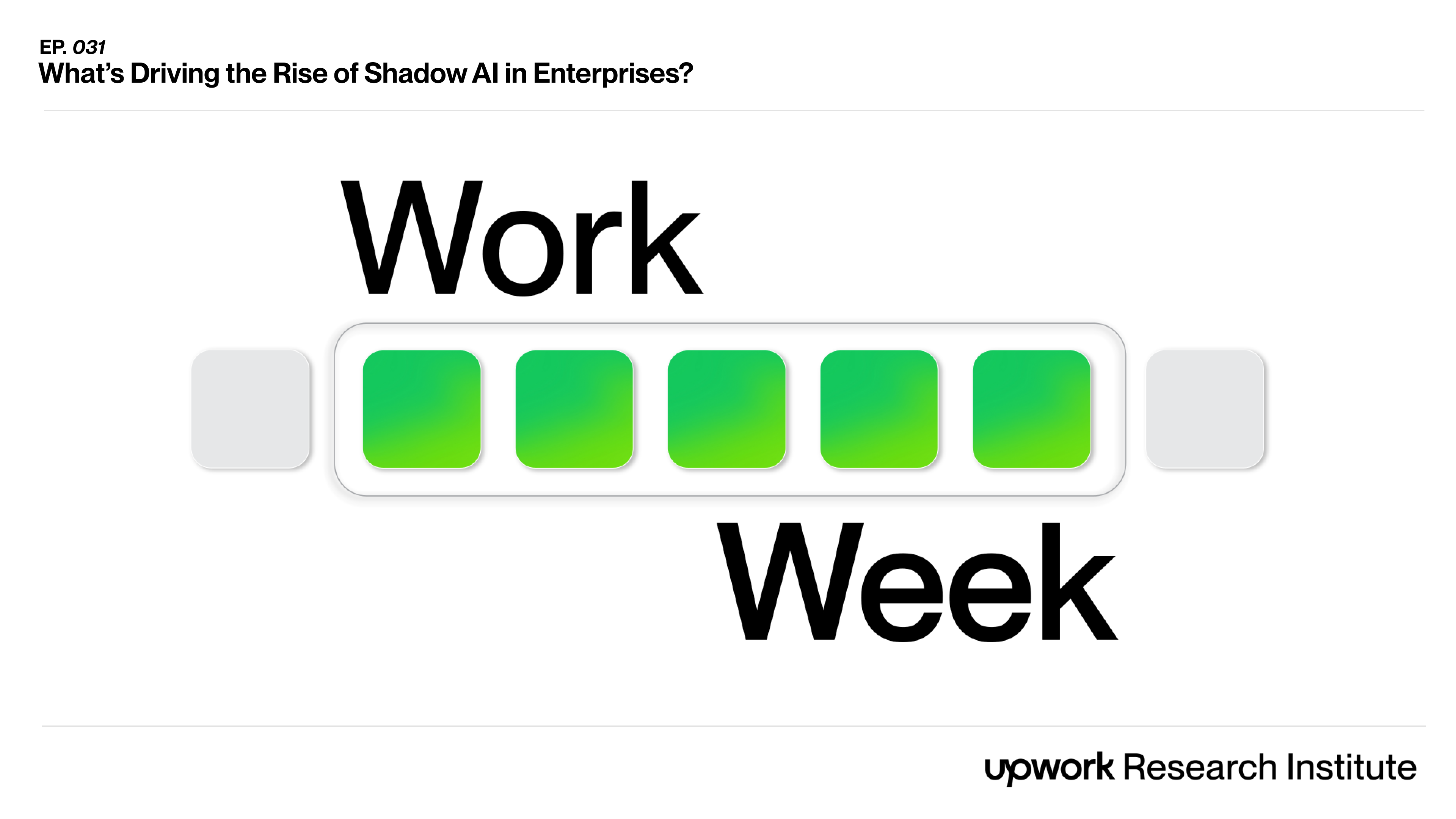
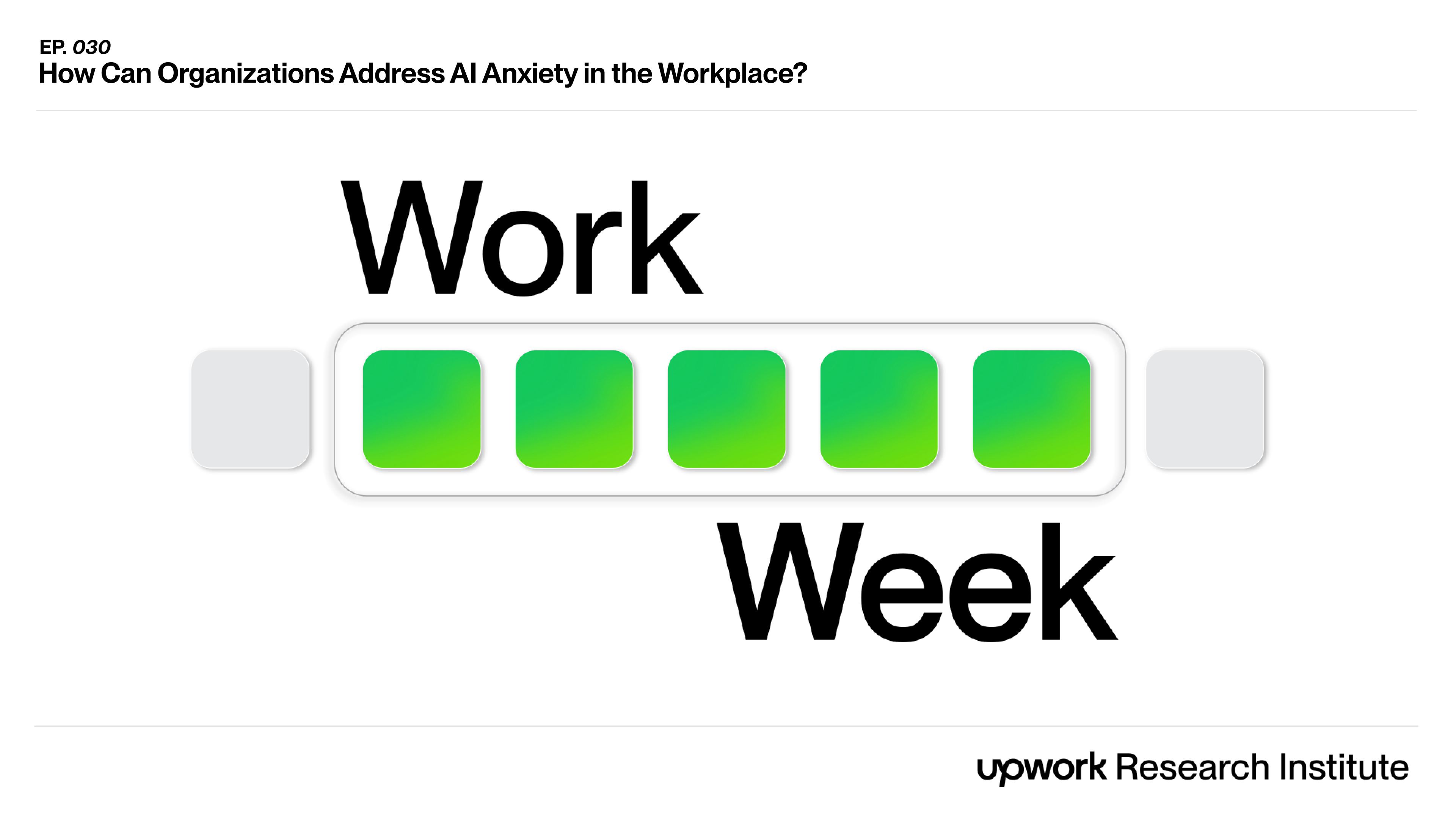
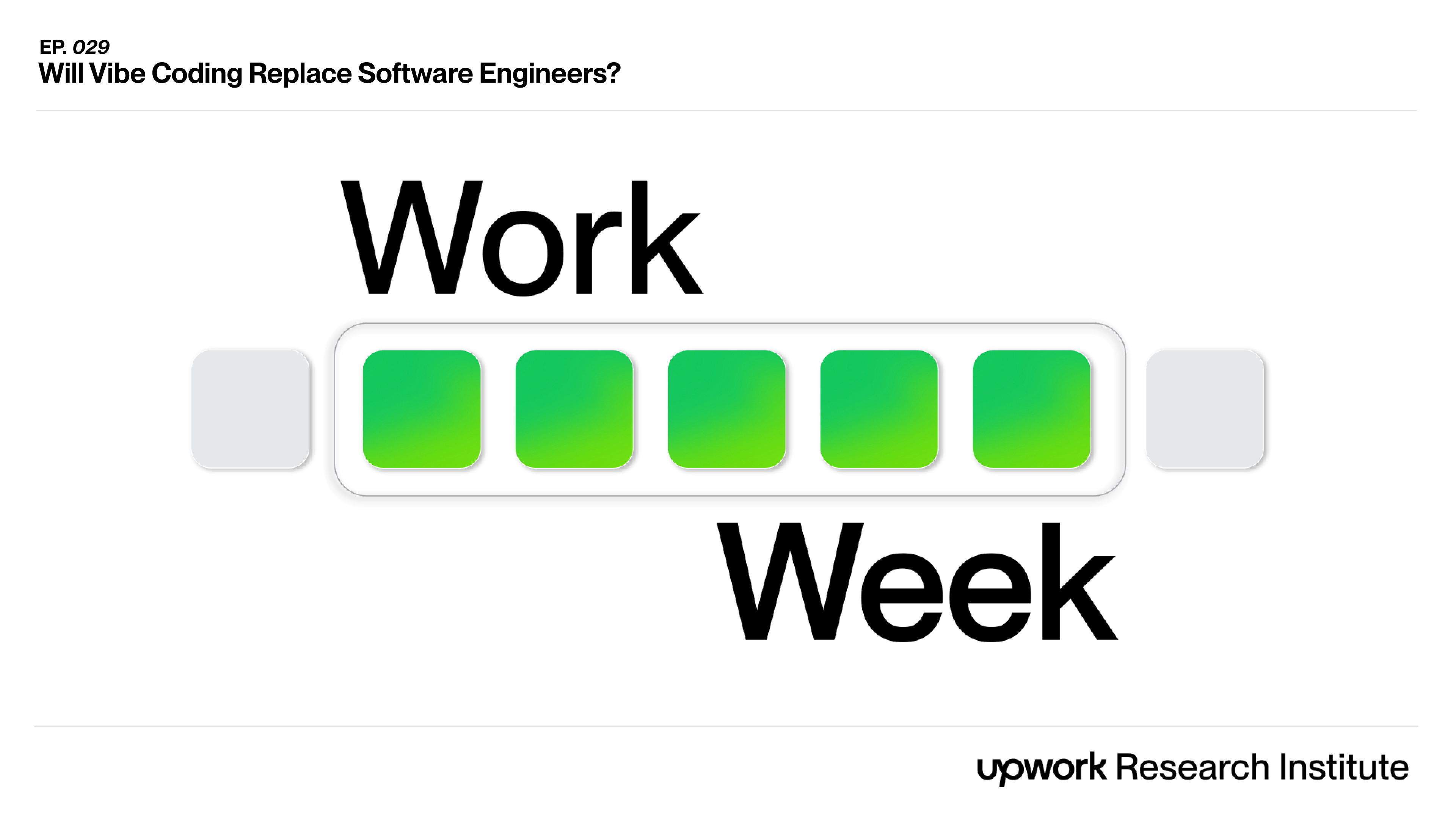
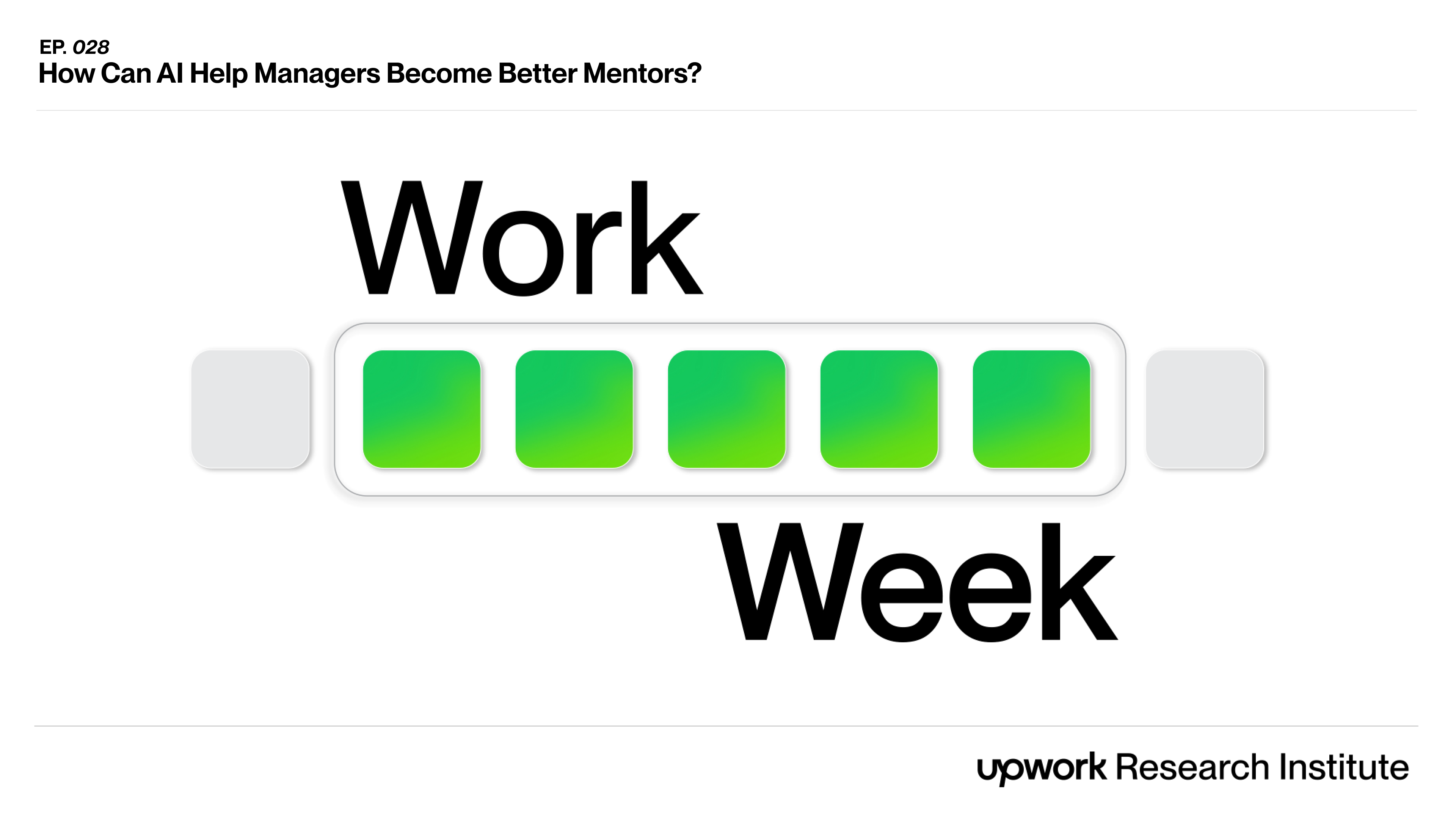

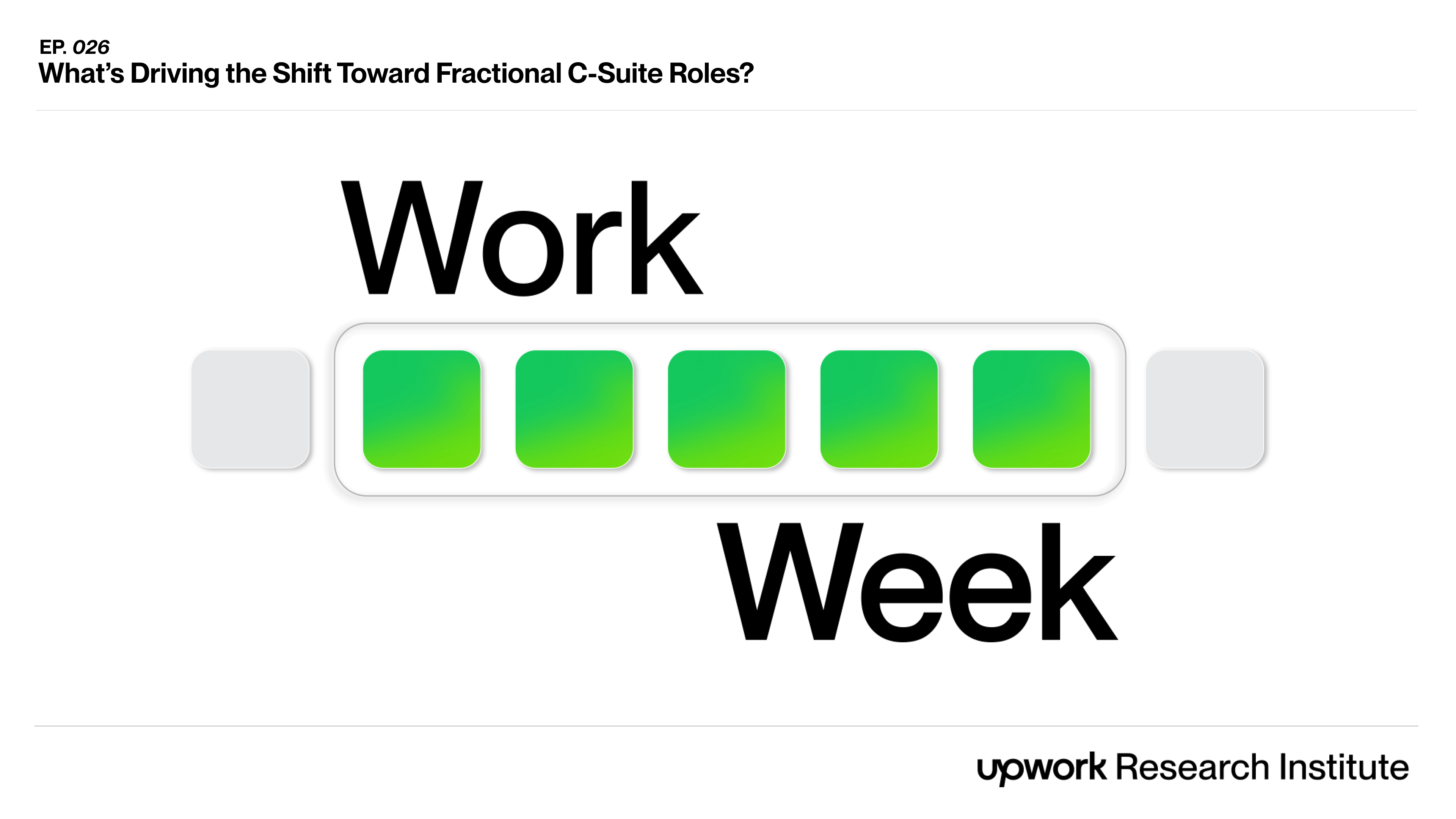
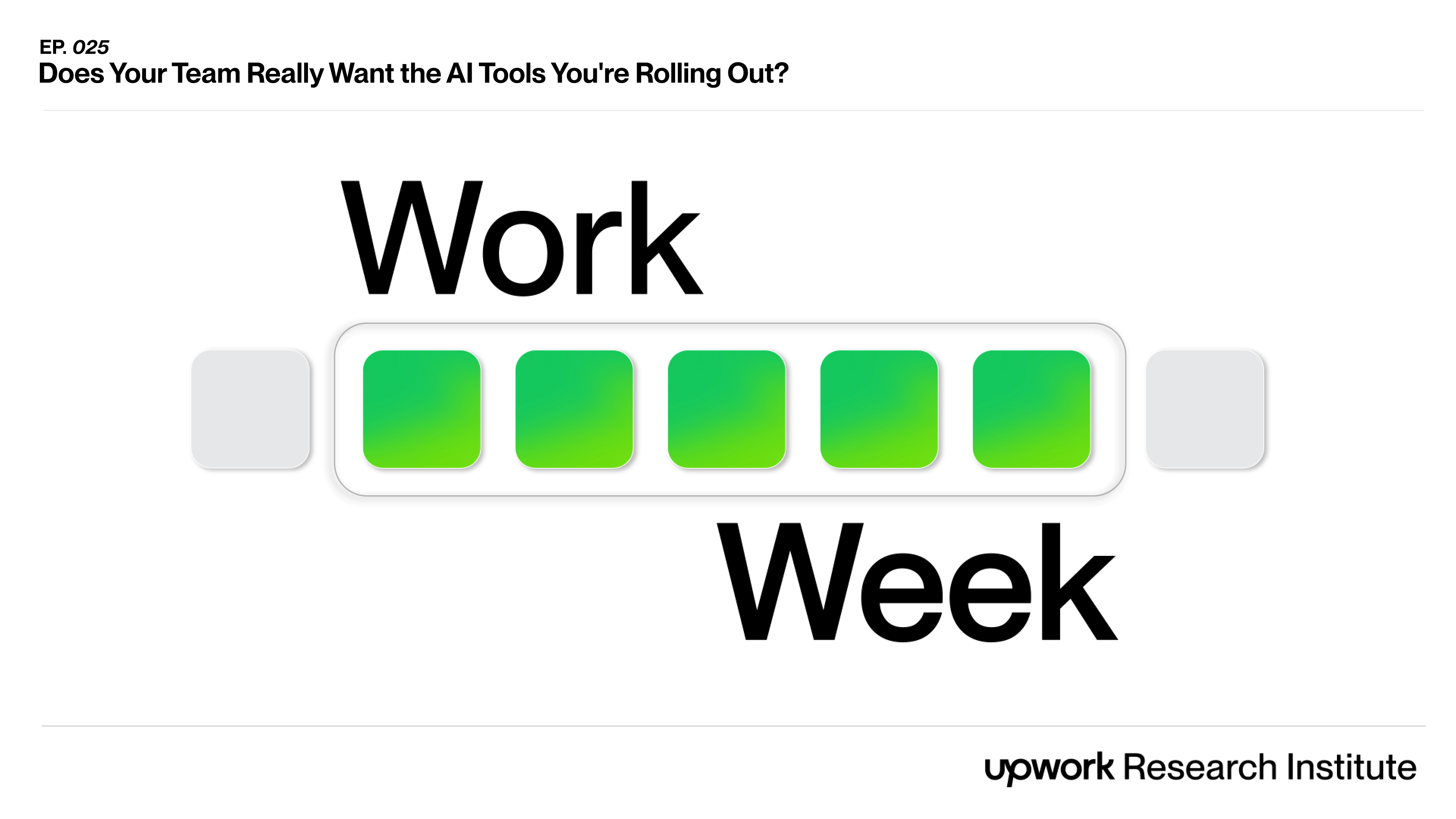
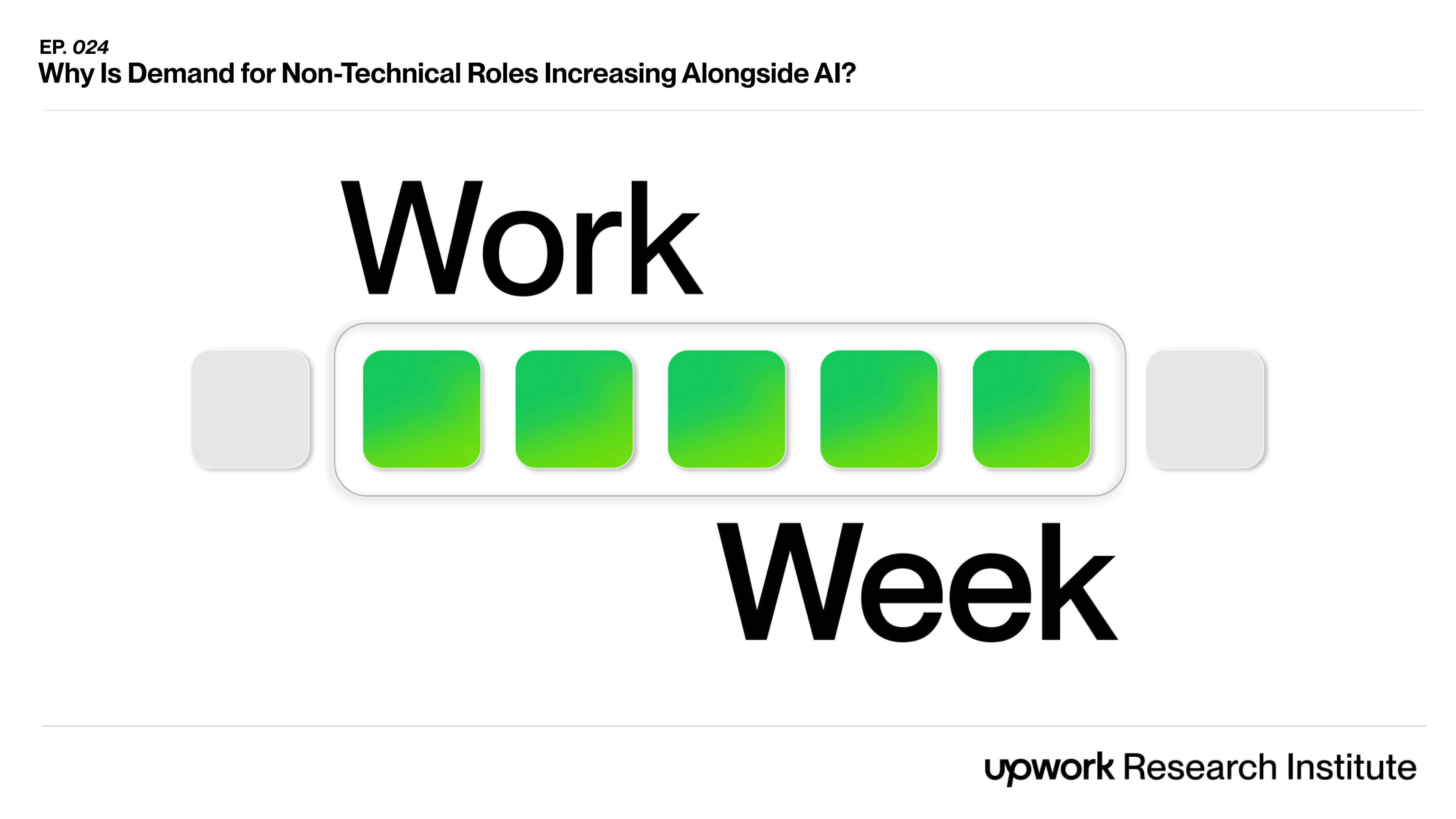
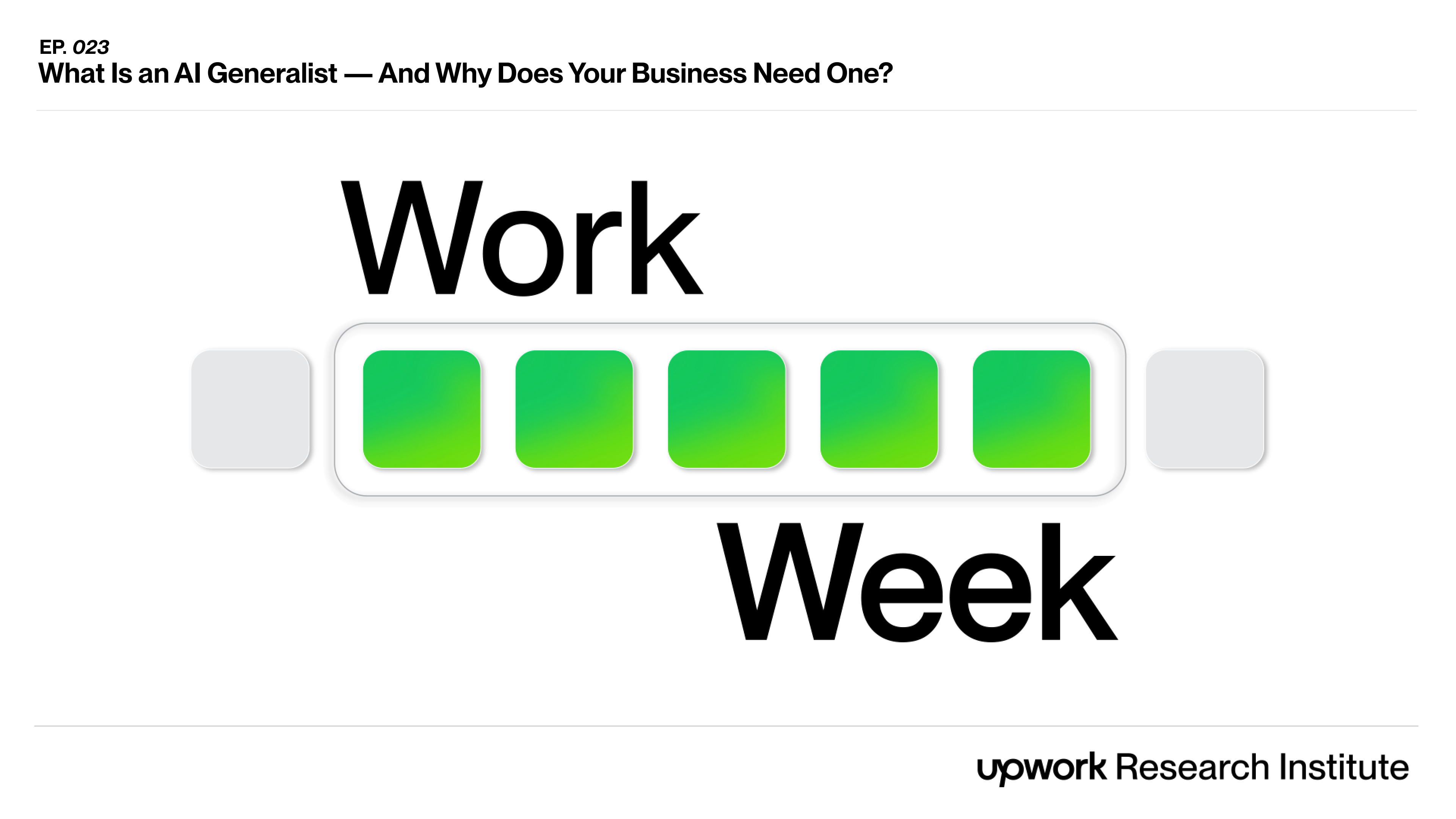
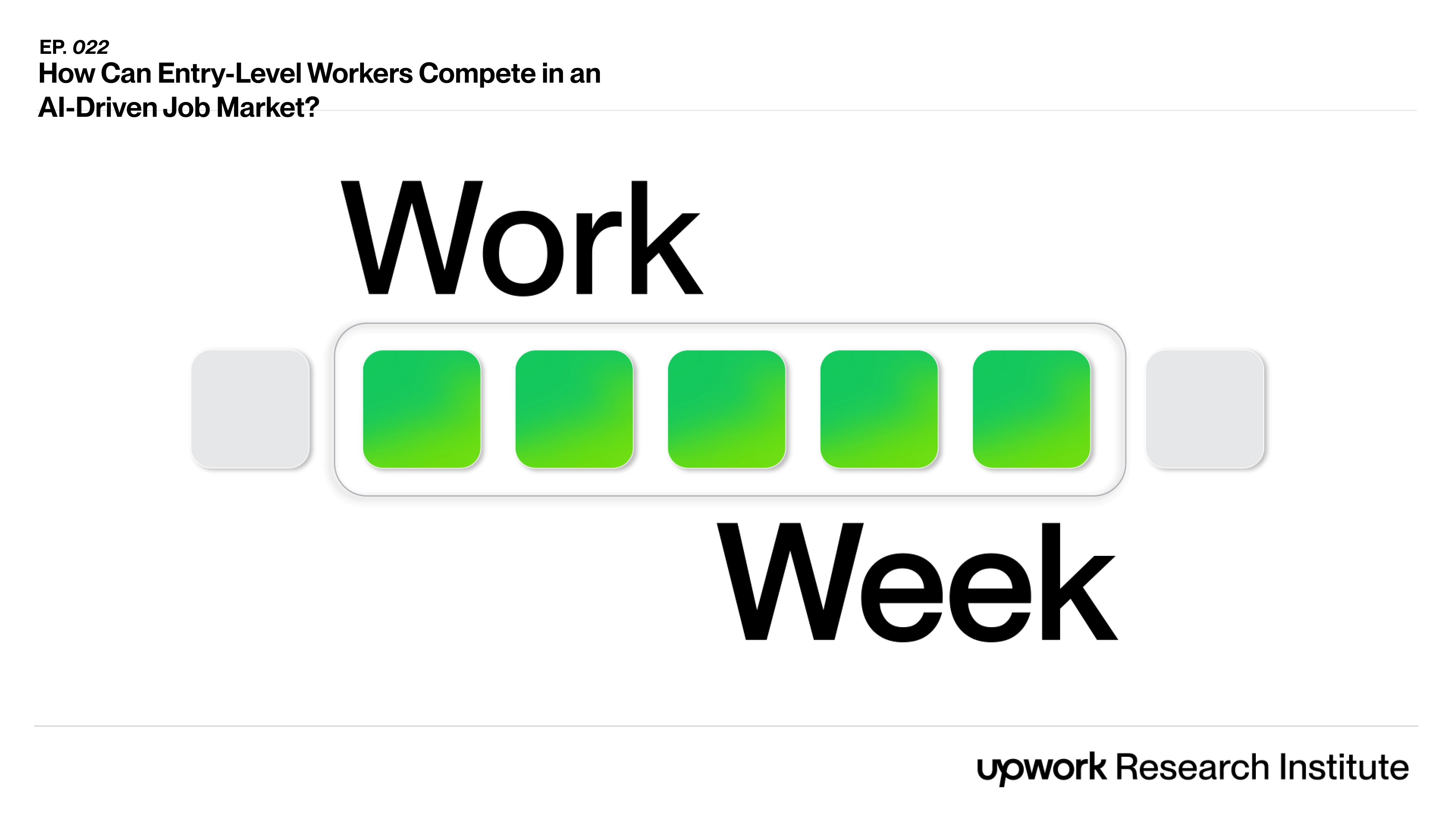

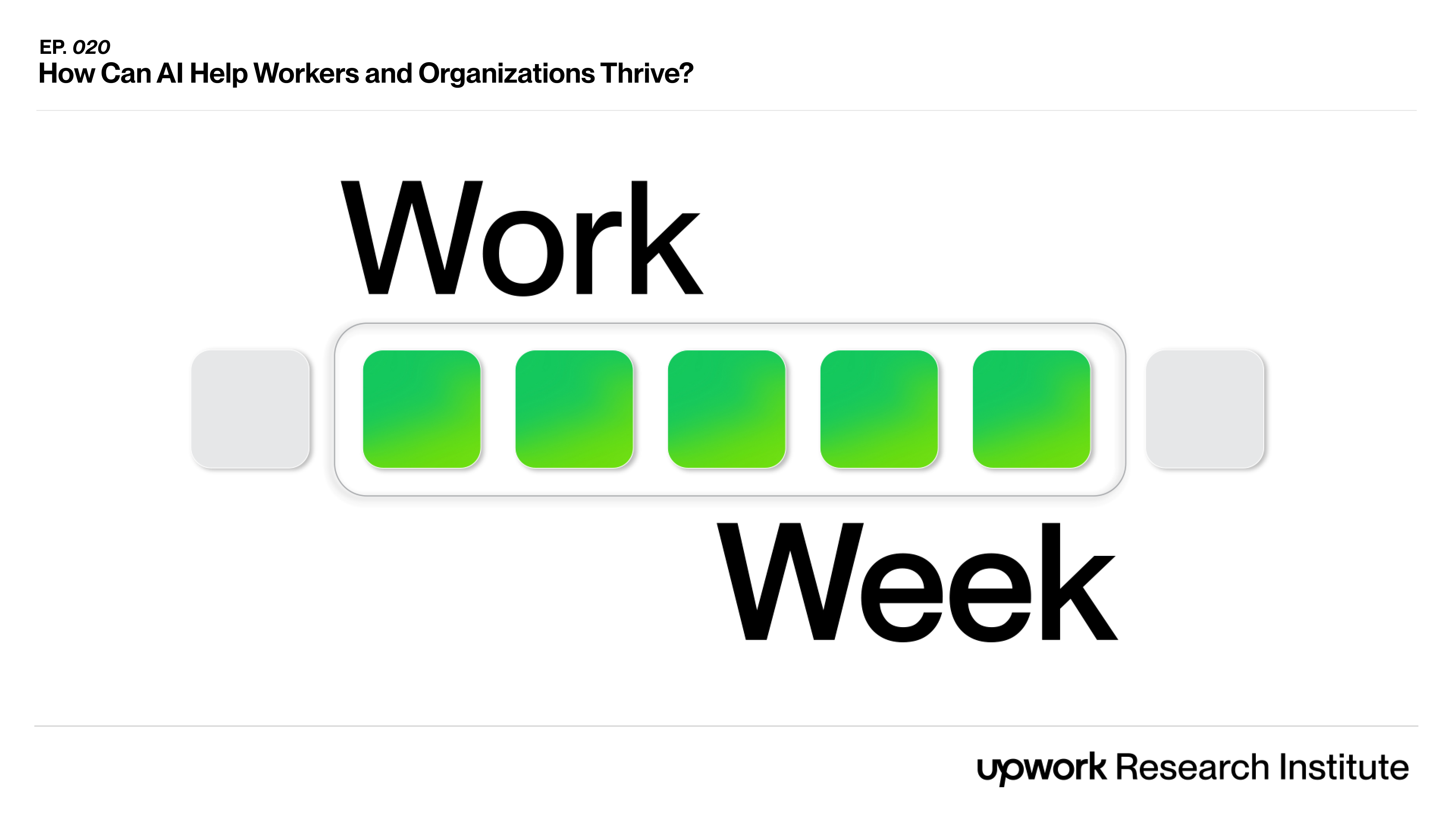
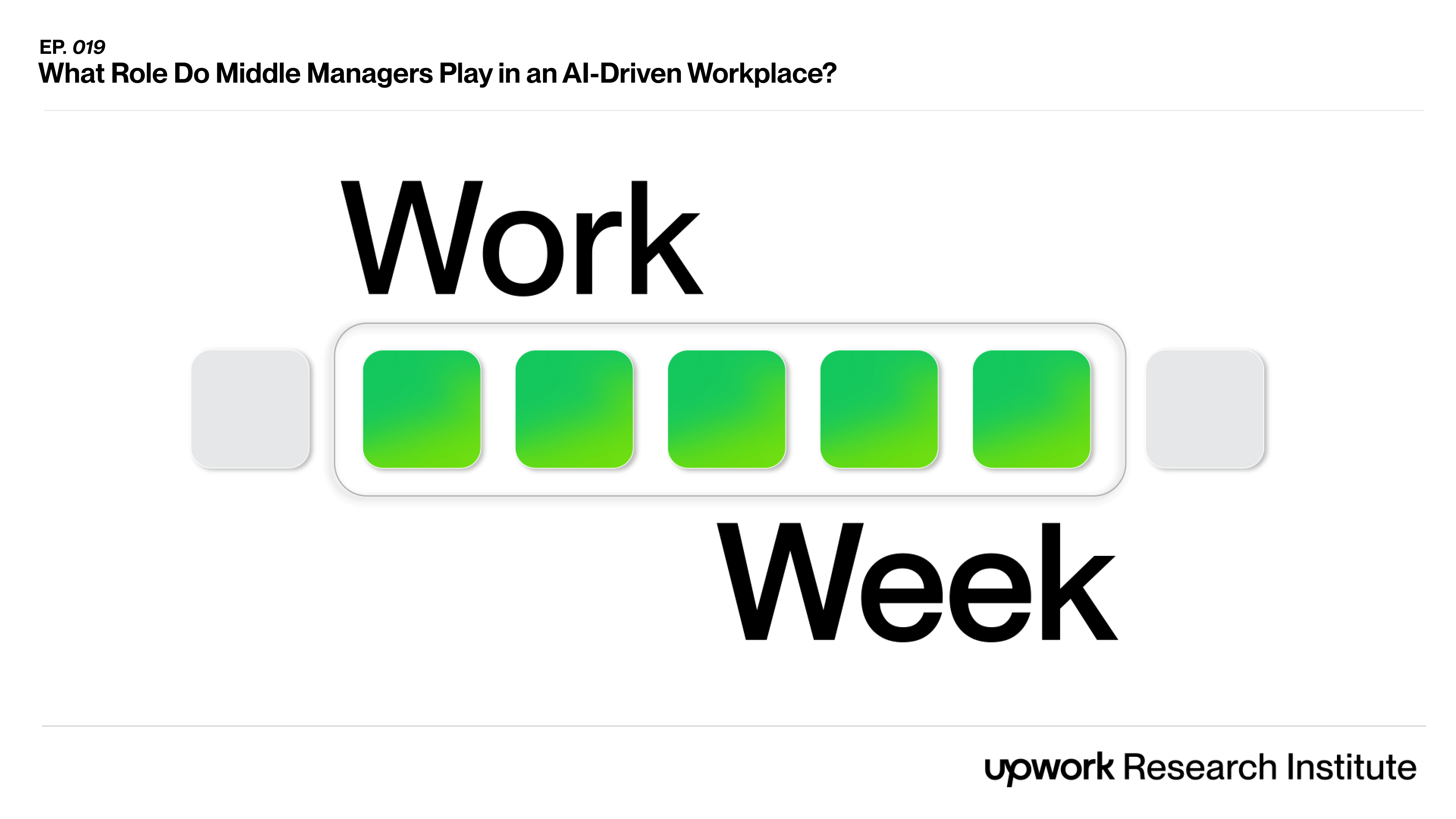
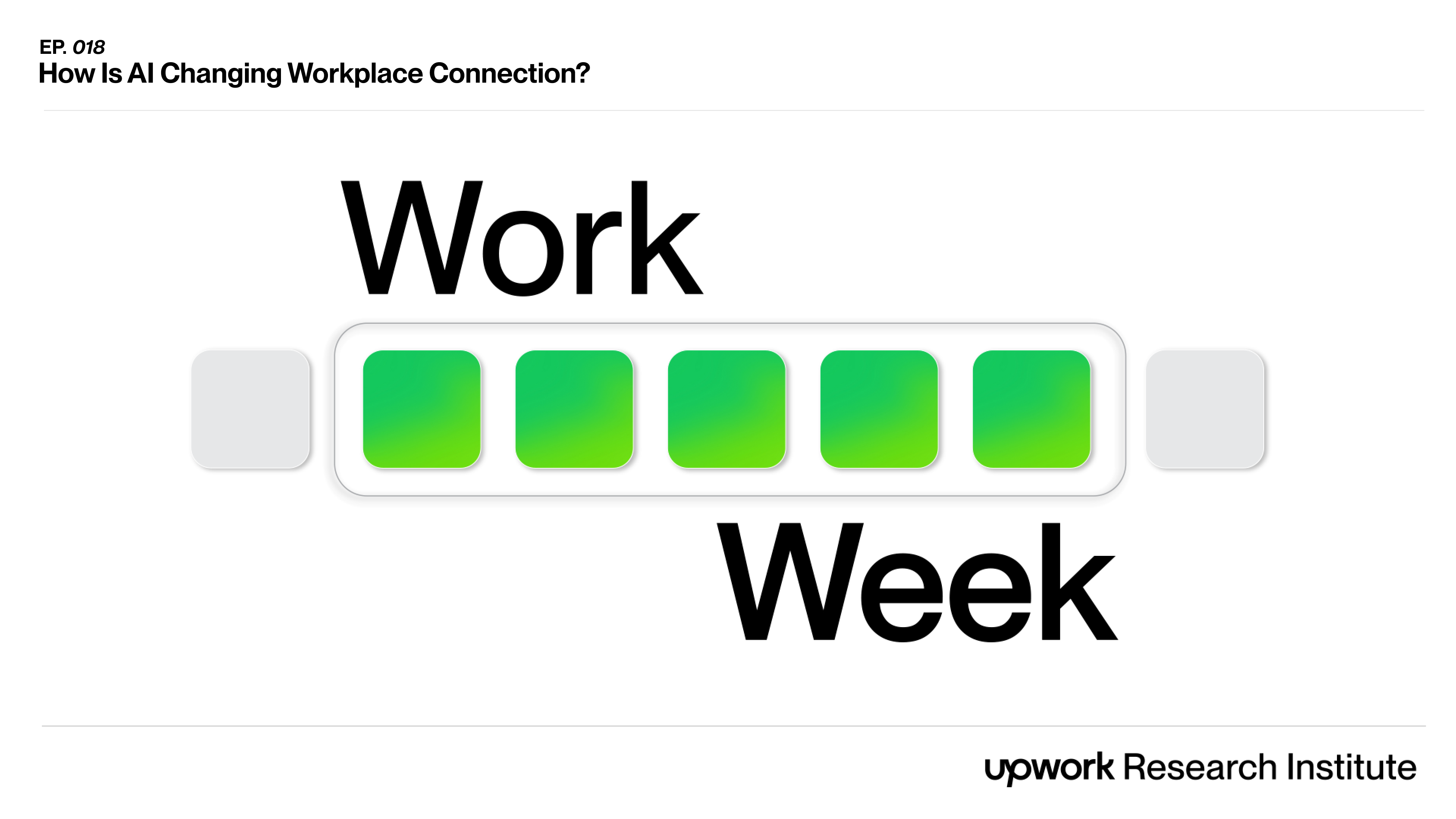

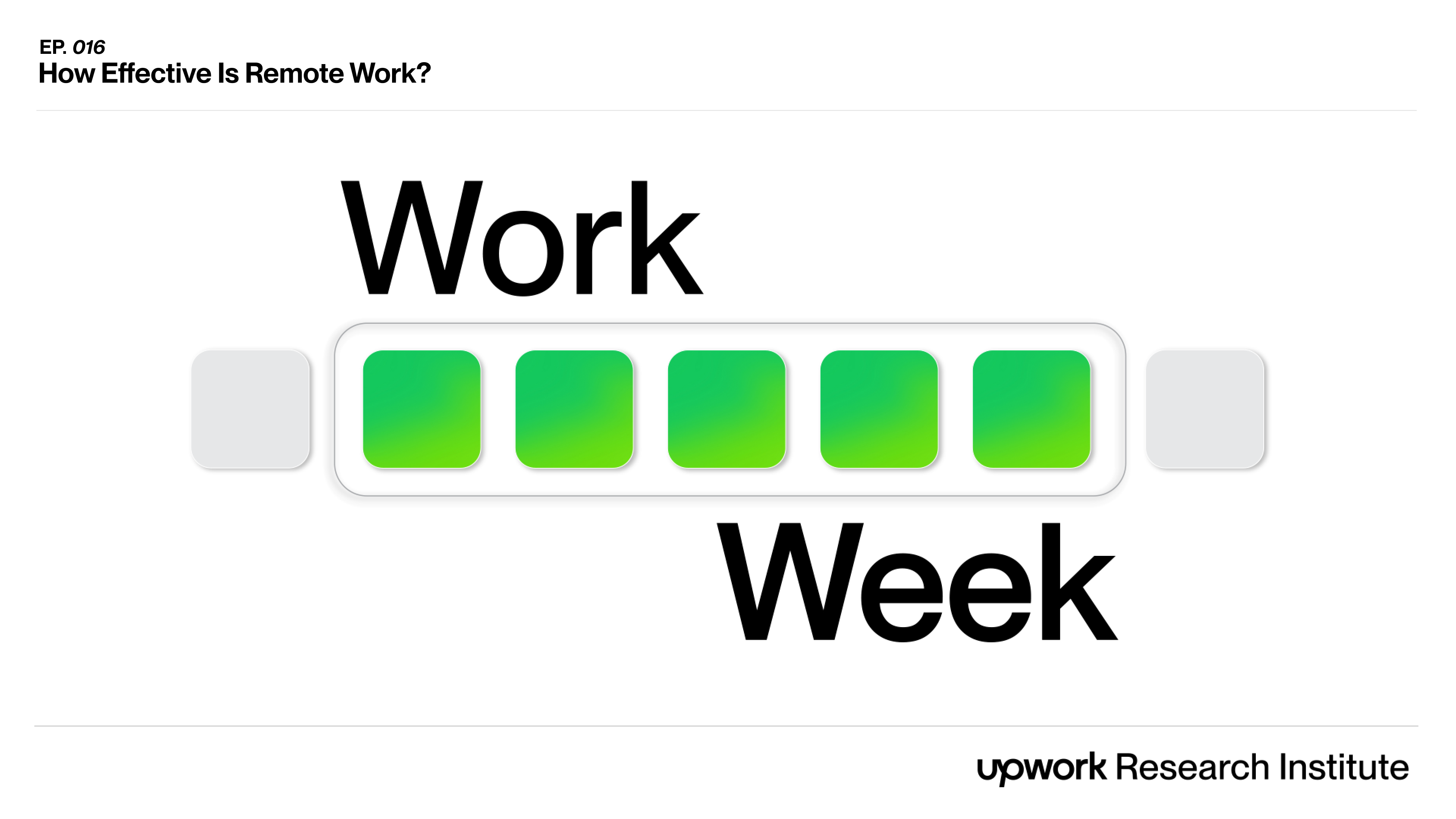
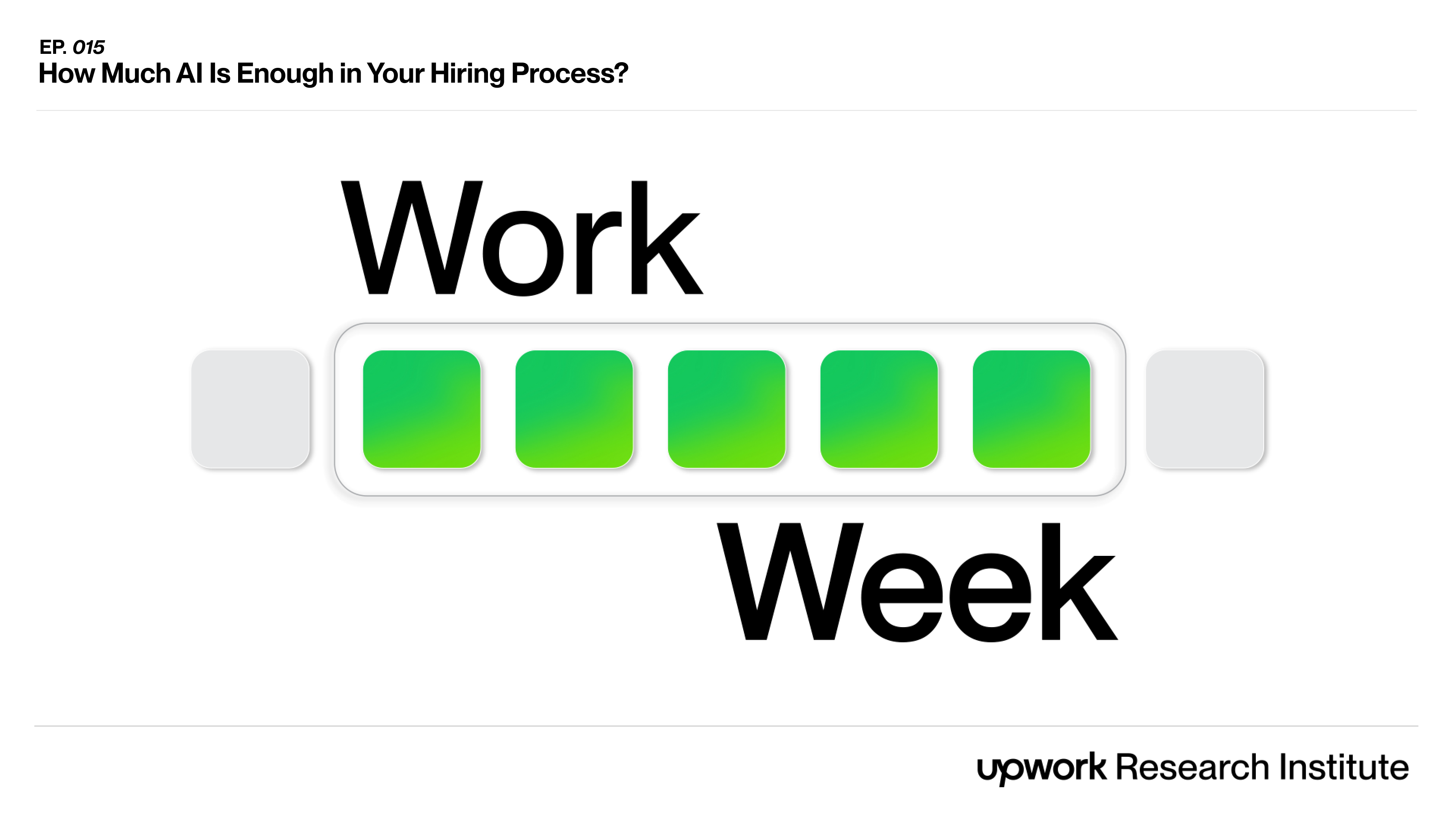

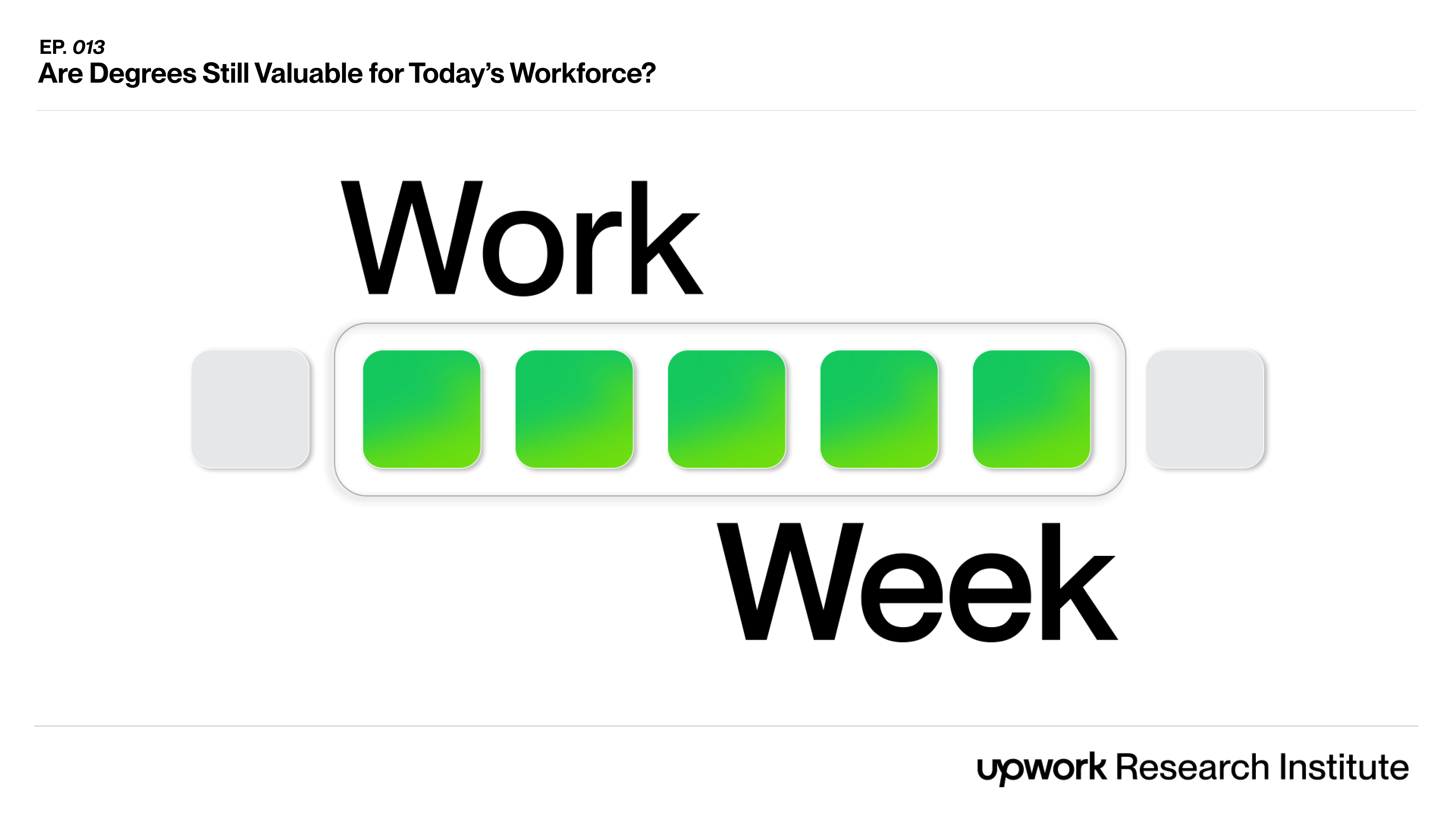
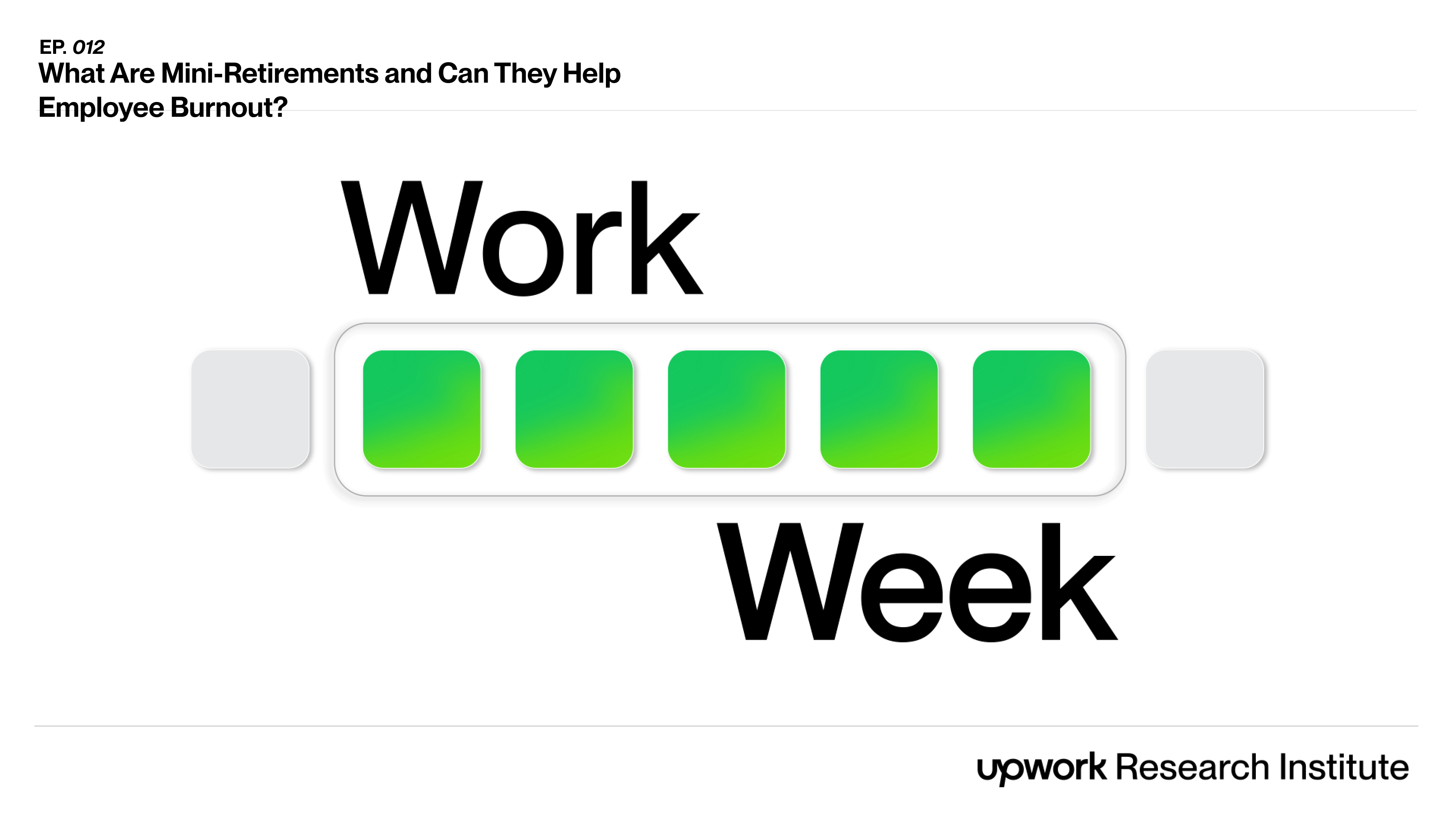
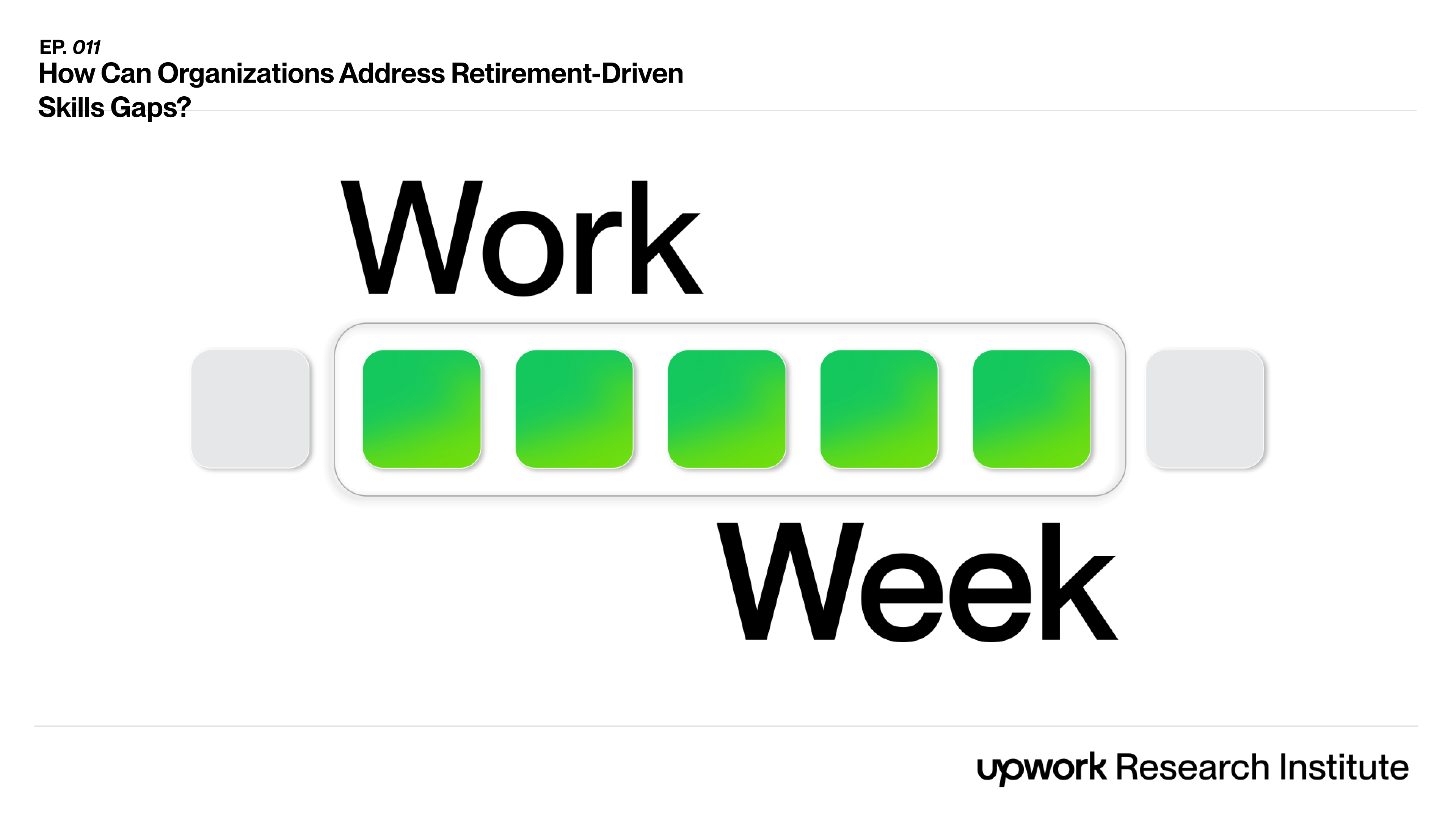
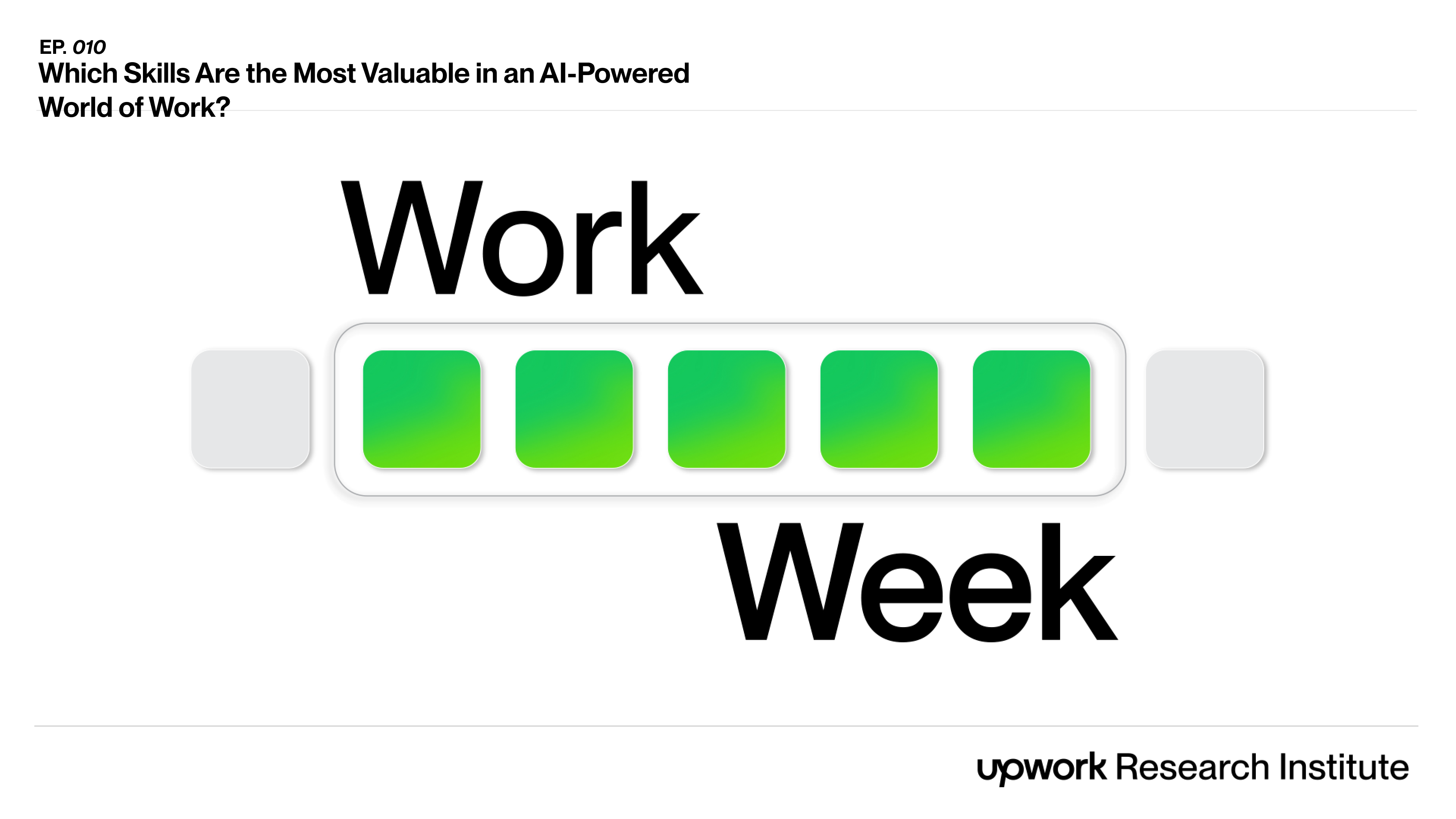
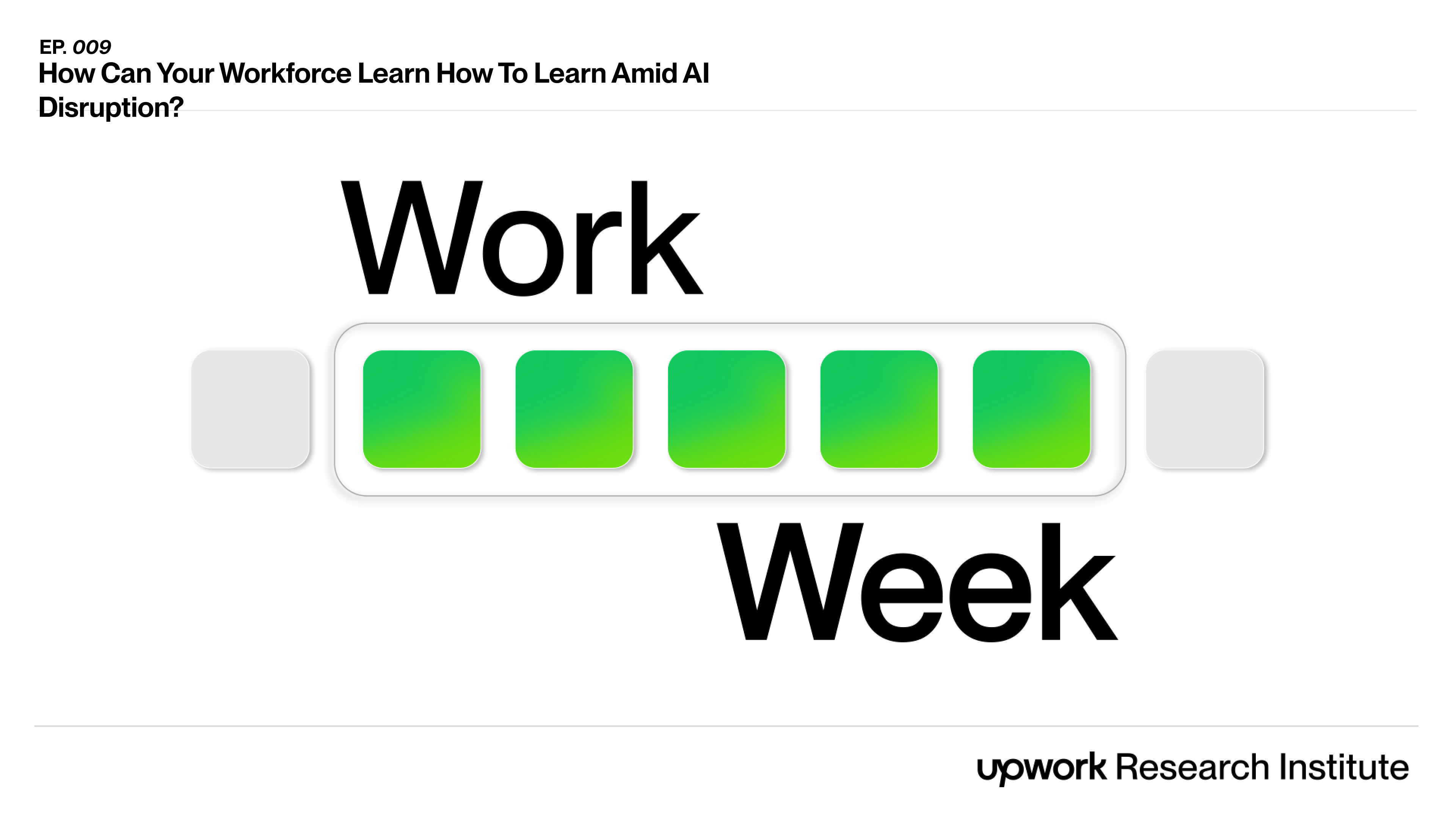
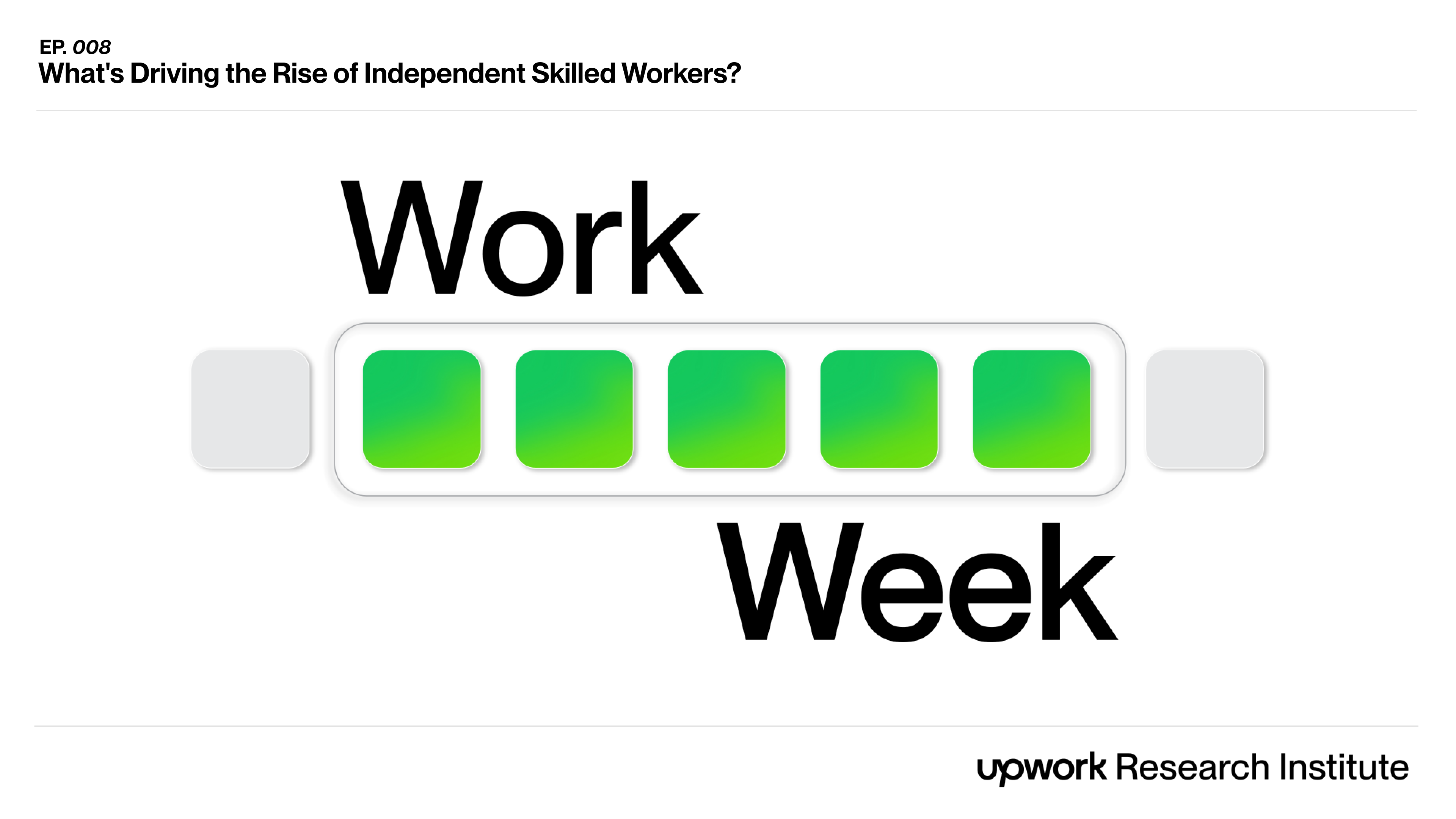
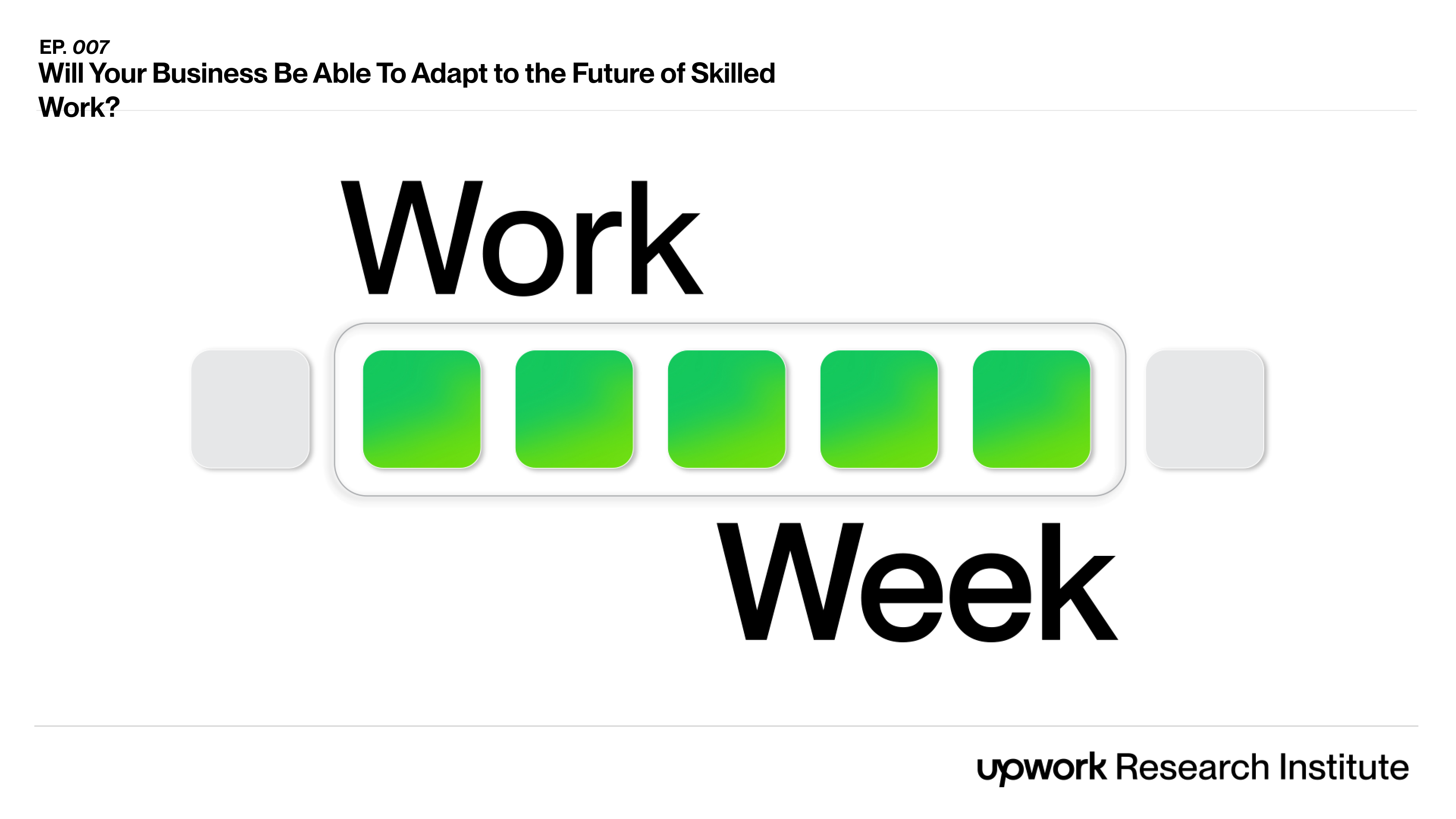
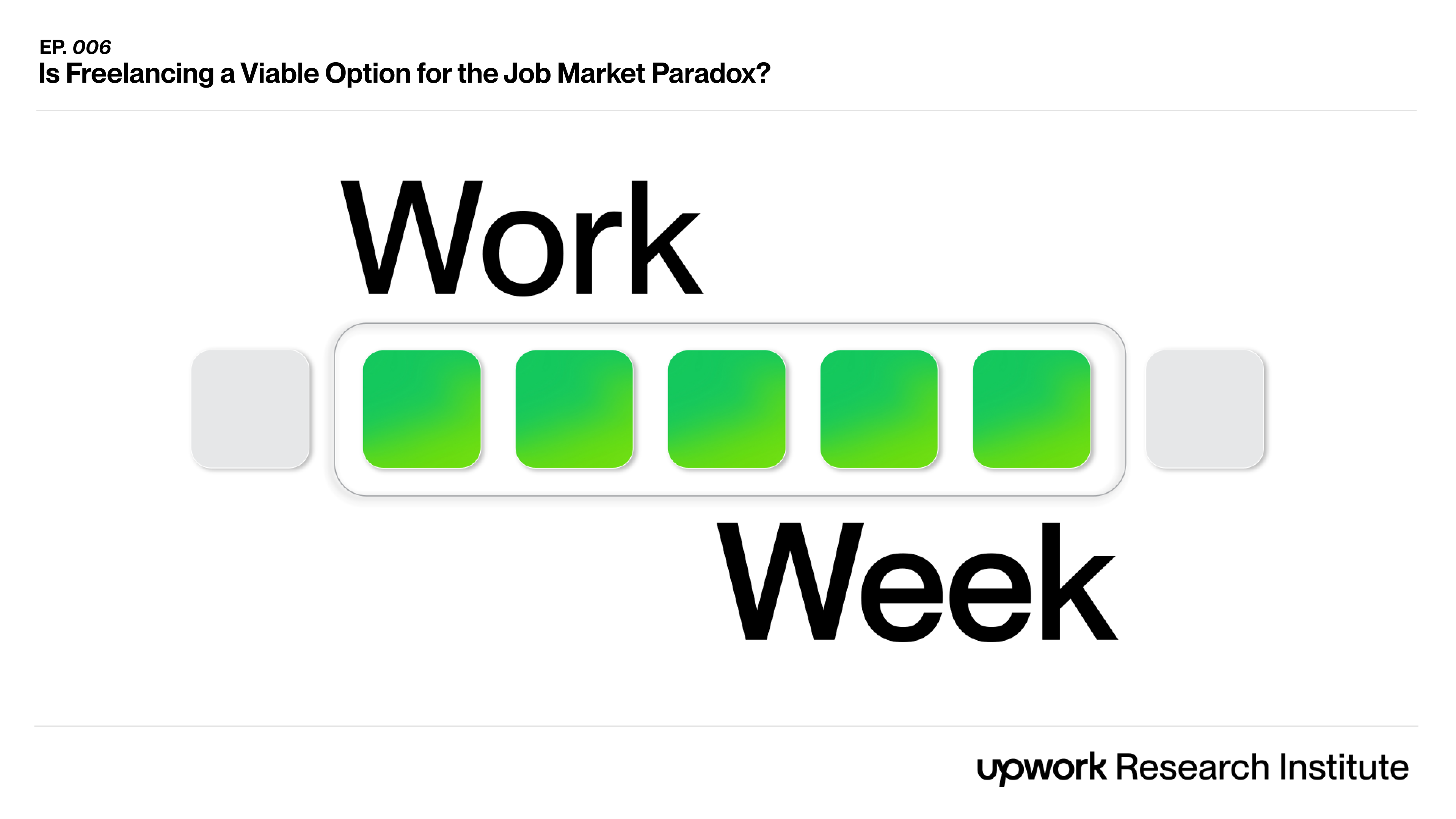
.png)
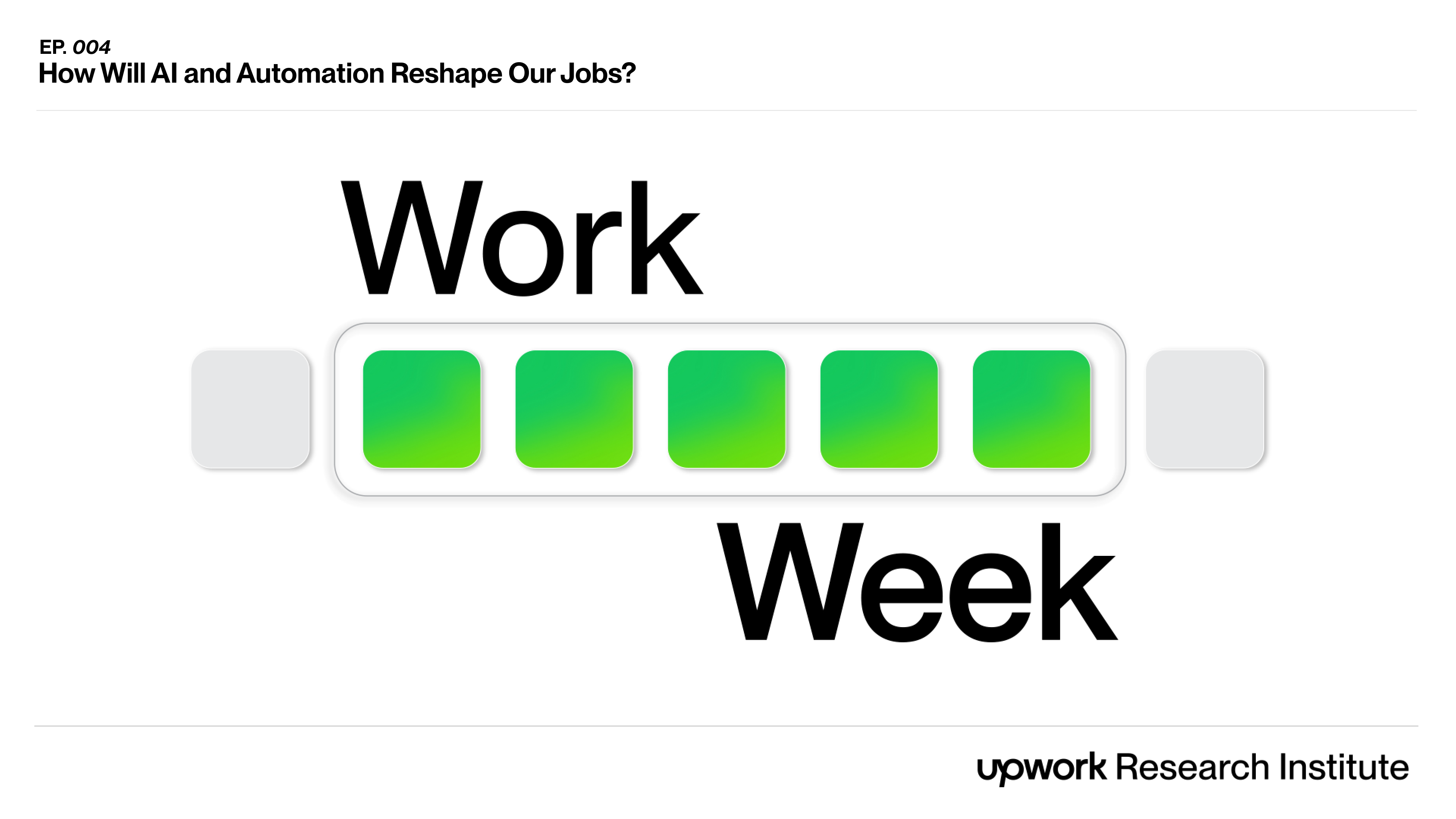
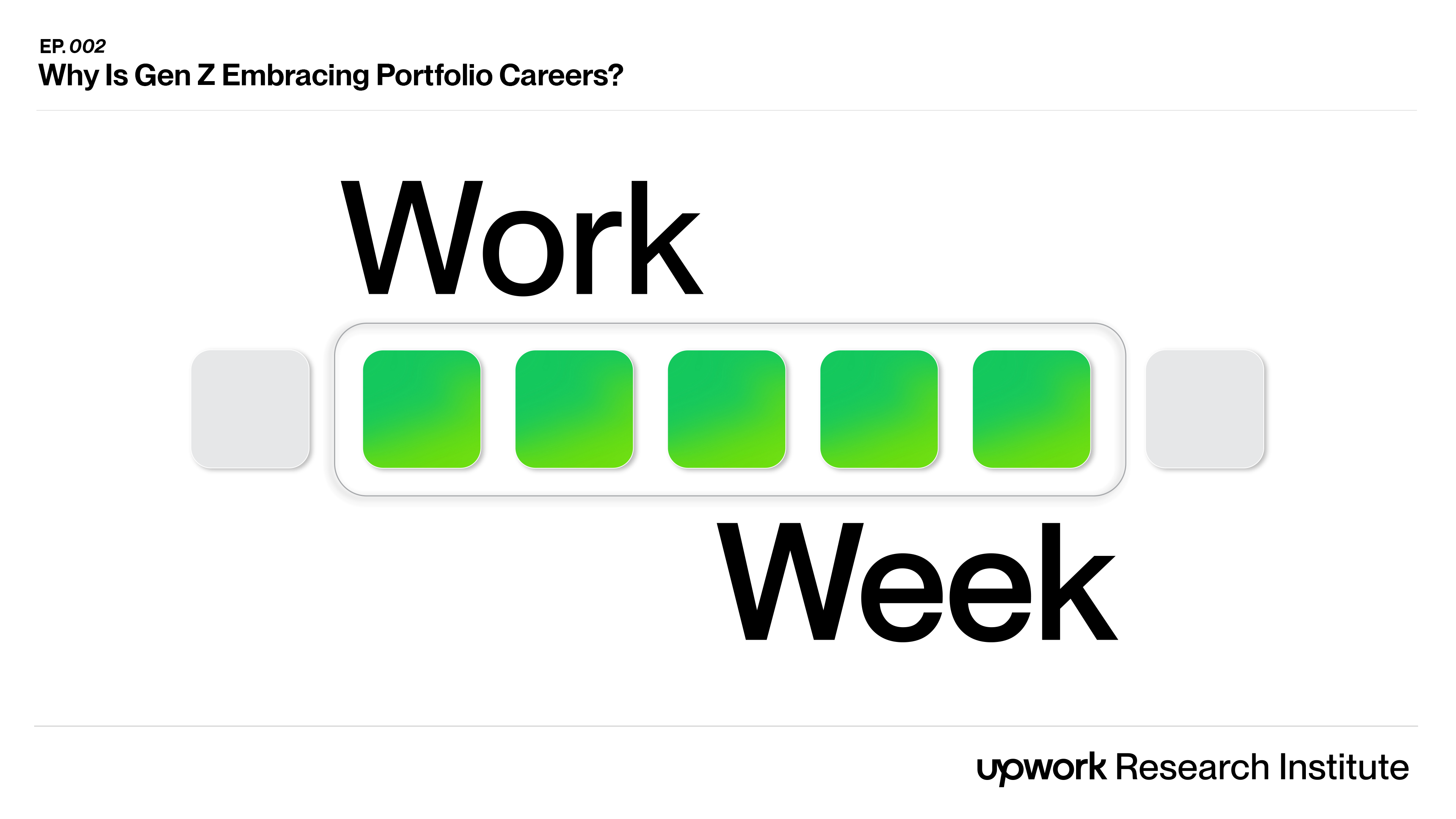
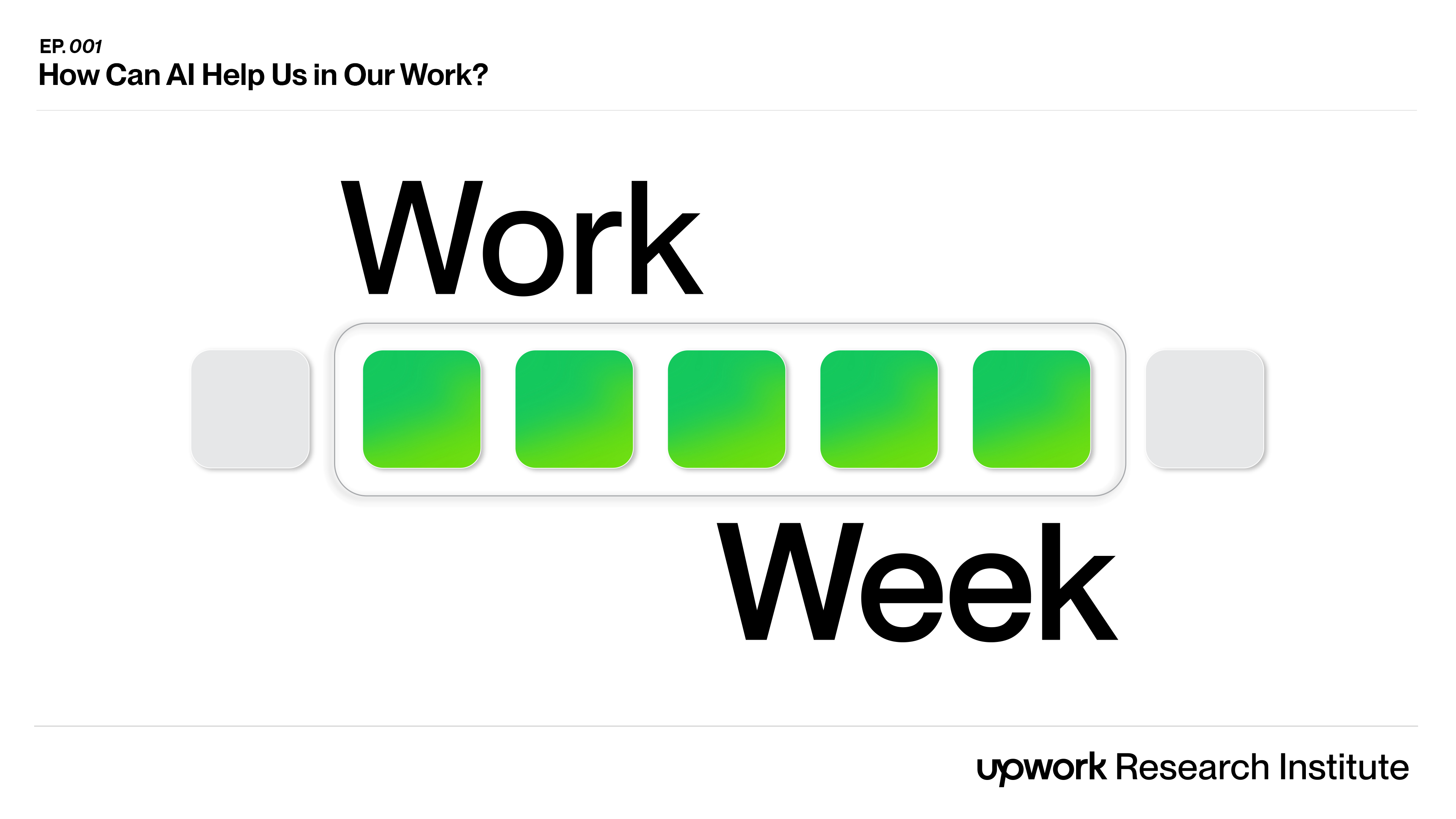
.jpg)